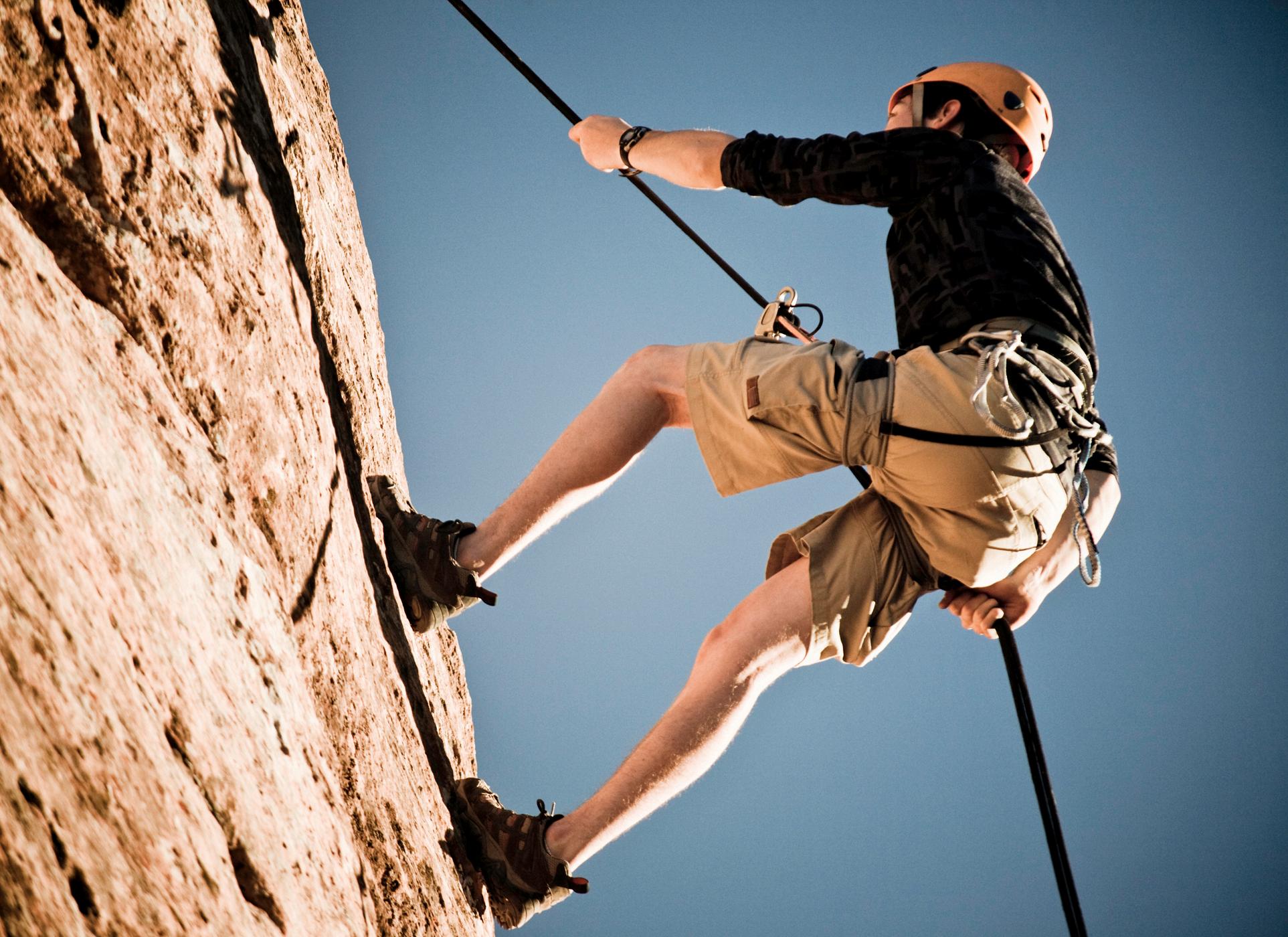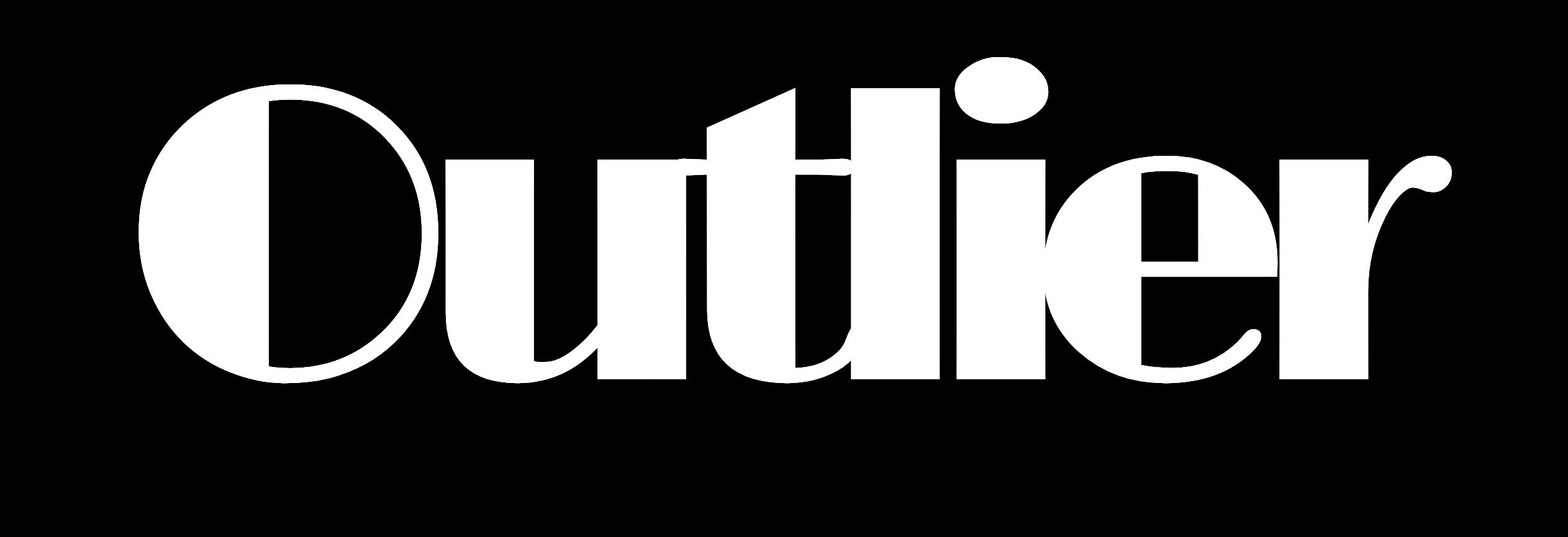
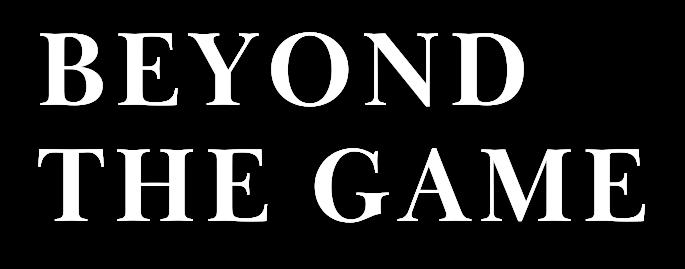
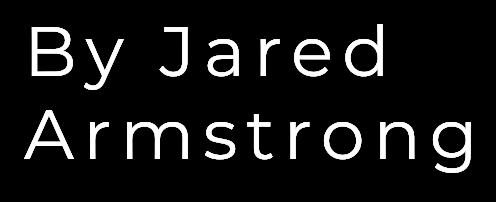

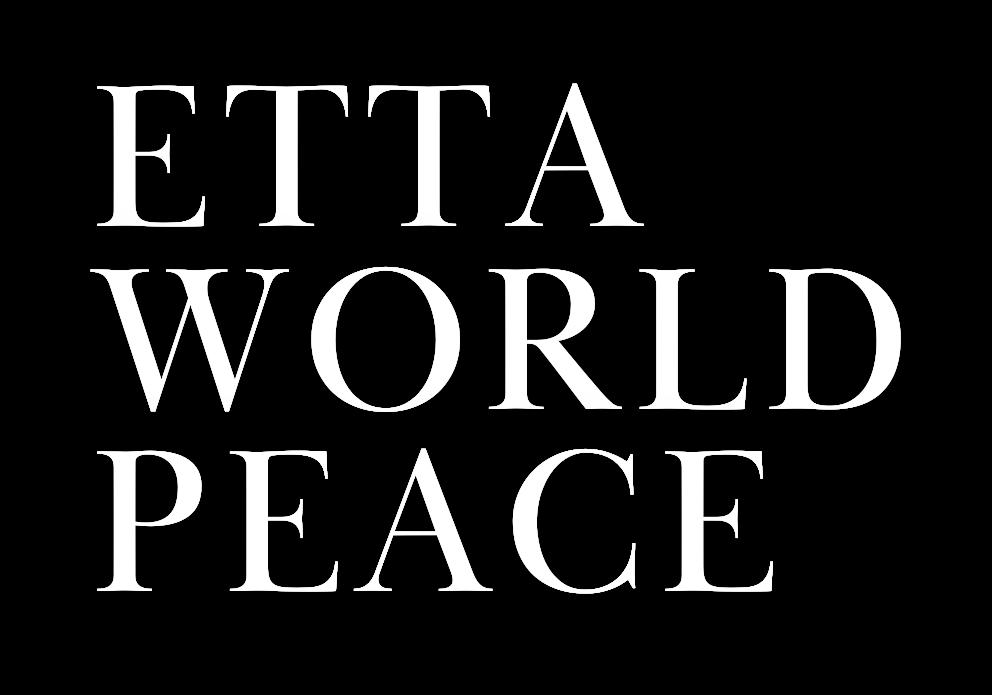
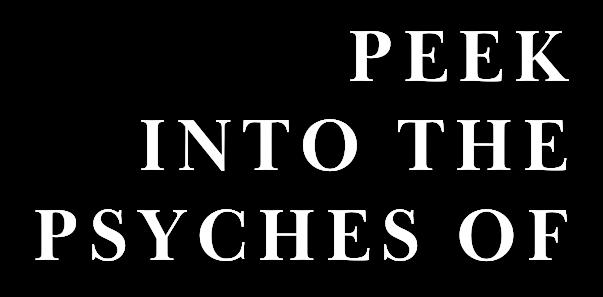
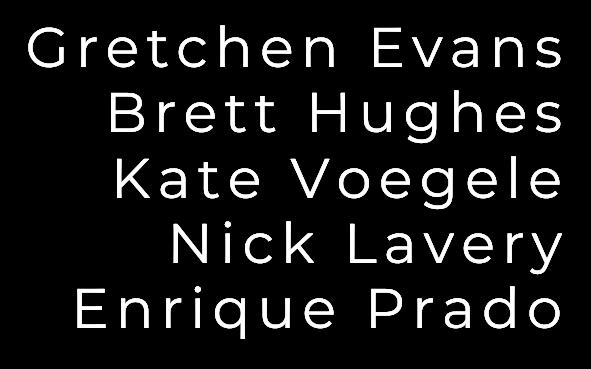



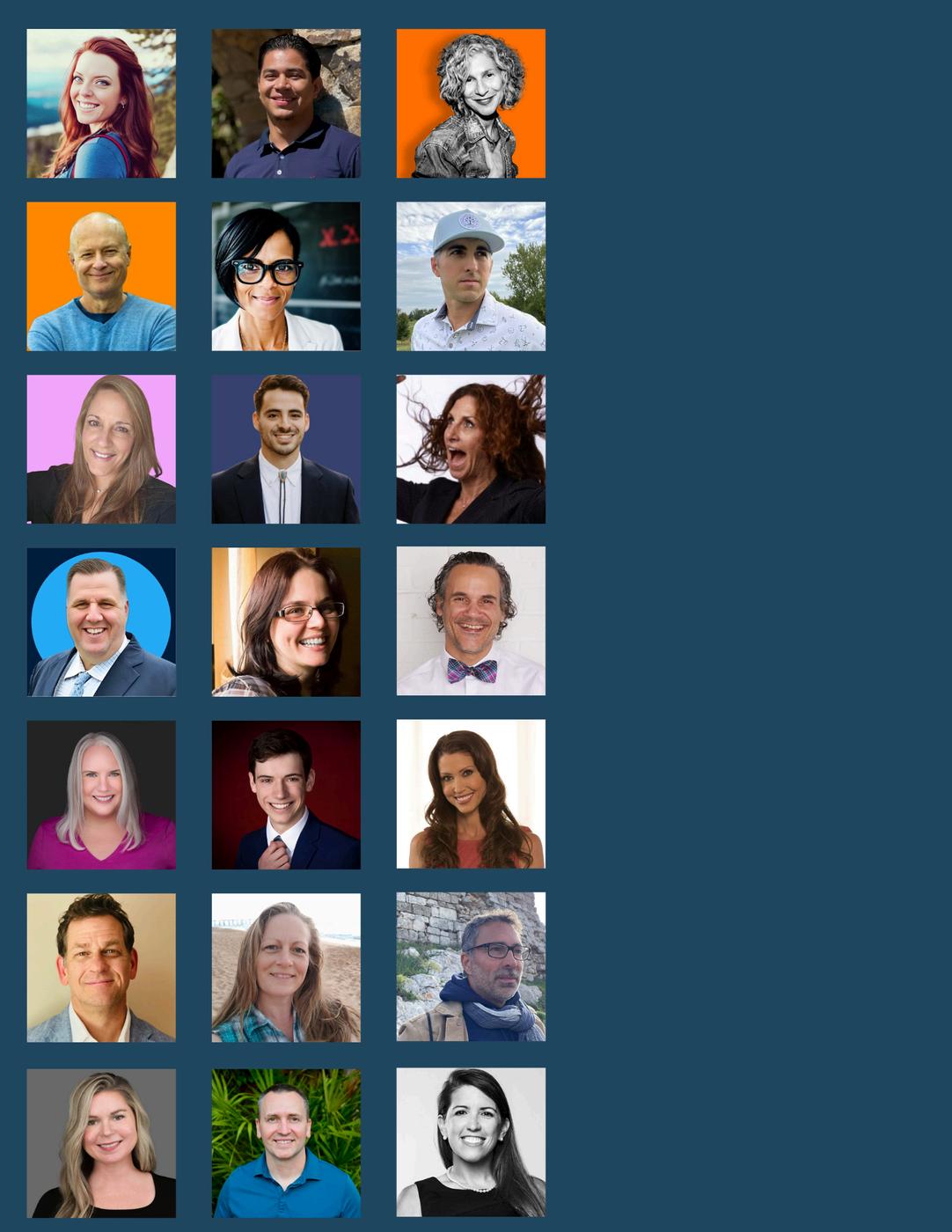

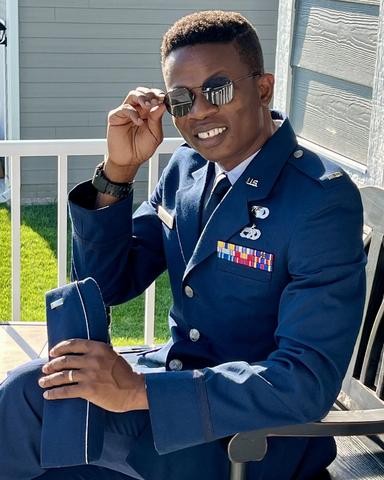
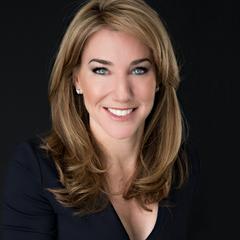
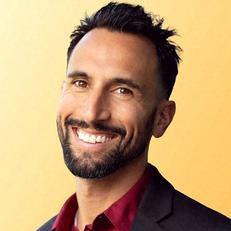
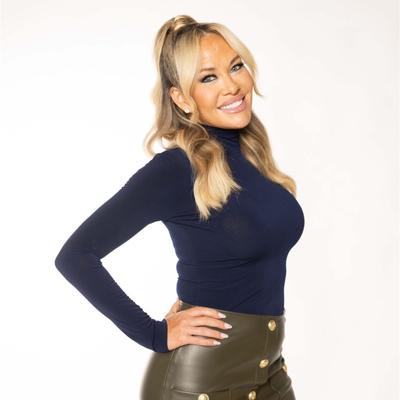
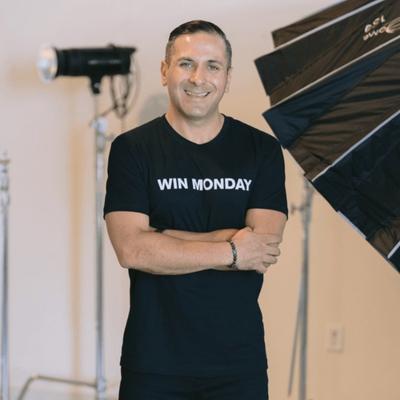

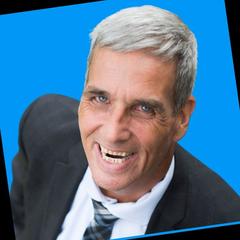
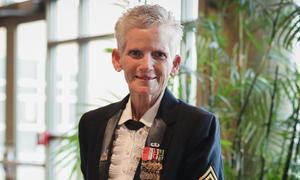
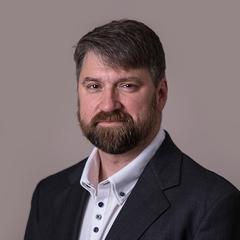

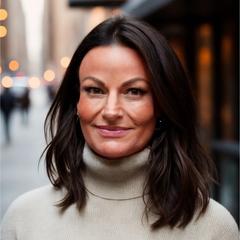

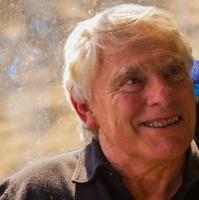
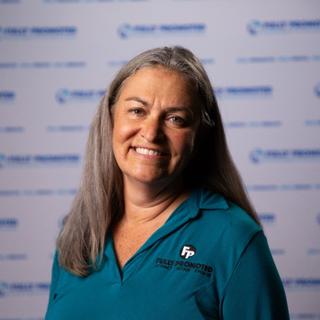
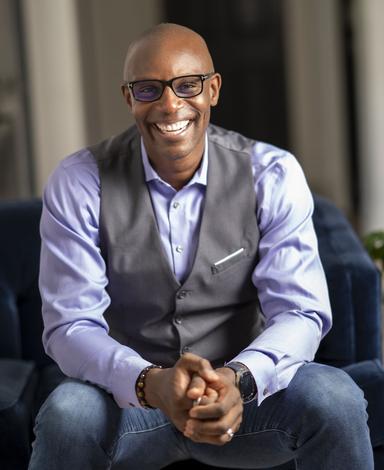
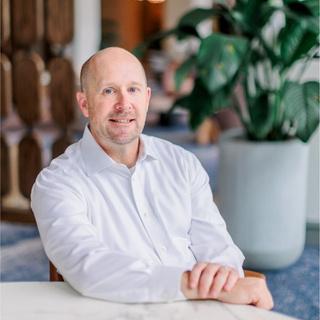
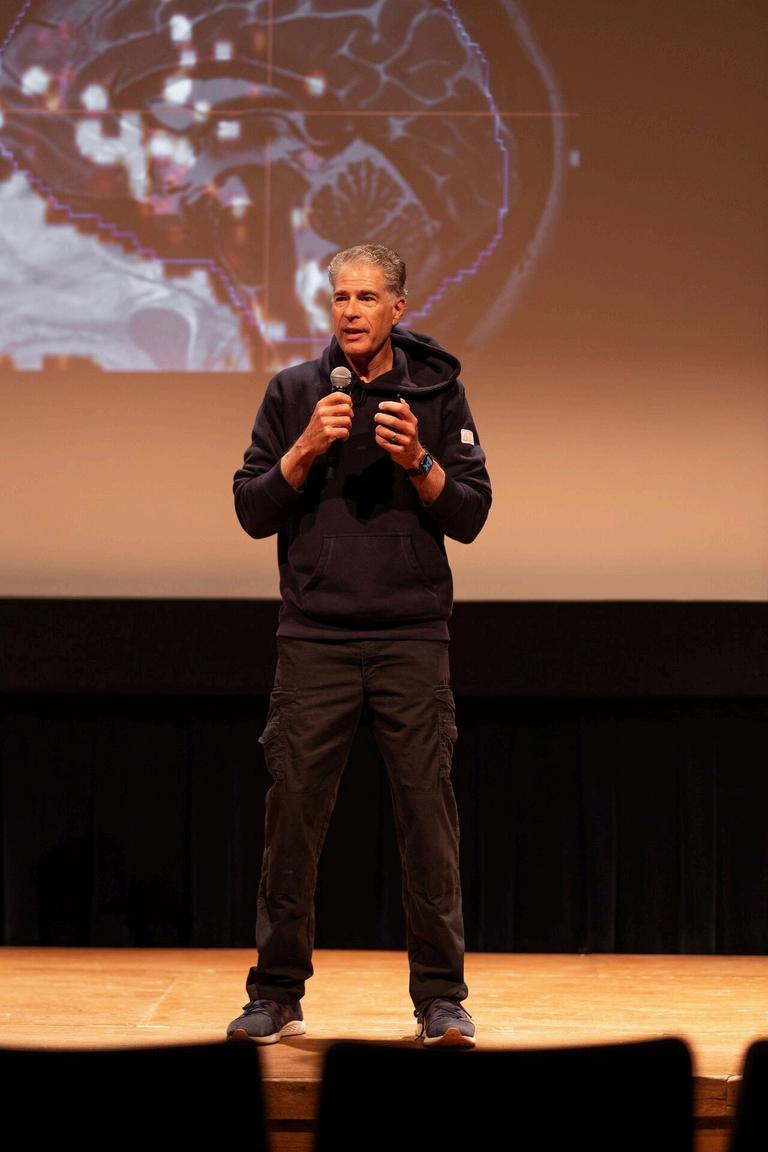


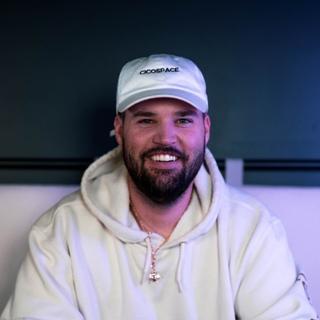

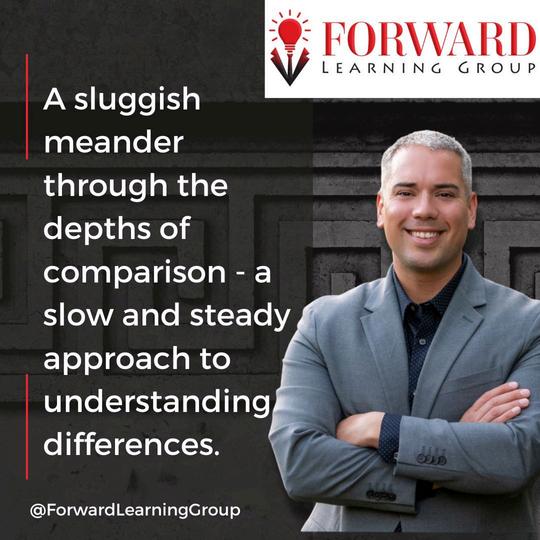



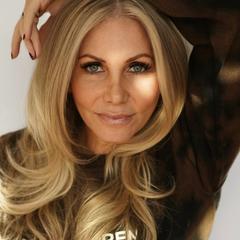
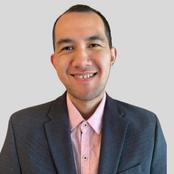
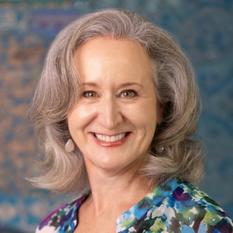
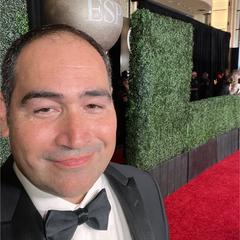












































06
LETTER FROM THE PUBLISHER
Living the Audacious Life
09 EXCLUSIVE FEATURE Nicaragua is for Outliers
07
23 Guiding Others to Their Best Life
UNCHARTERED HEIGHTS: GRETCHEN EVANS
15
OUTLIER MAGAZINE STAFF SPOTLIGHT Victoria Walling, Content and Art Director
29
BONUS FEATURE: SCOTT PAGE
From Architecture to Arena Stages
UNCHARTERED HEIGHTS: NICK LAVERY

Discipline Fuels Success: The Power of Habits and Consistency

36
UNCHARTERED HEIGHTS: KATE VOEGELE The Power of Shared Experience
44 UNCHARTERED HEIGHTS: BRETT HUGHES Growth Keeps You Moving
54 UNCHARTERED HEIGHTS: ENRIQUE PRADO Intelligence is Not Like the Movies, It’s a Puzzle
64 BONUS FEATURE: KEN RIDEOUT Train Like You Can’t Win, Race Like You Can’t Lose
COVER STORY: METTA WORLD PEACE
80 A Journey of Resilience, Reinvention, and Bold Ambitions
100 FUEL FOR YOUR OUTLIER MINDSET Hand-Selected Nuggets for Your Noggin

106
FEATURE STORY: BEYOND THE GAME
Using Basketball to Break Barriers, Build Bridges, and Inspire Change
112 BONUS FEATURE: RYAN FISCHER
From Rock Bottom to Relentless
Follow these outliers who are redefining what it means to truly live an outlier life
126
OUTLIER POWERHOUSES
Thought-provoking quotes from real outliers




I like words that can have very different meanings Audacious is one of them Some may opt for the more negative definition. I see the positive. People with audacity are bold, fearless and daring. Sounds like an outlier to me.
We live in a world built around safety and comfort vanilla lives that often just blend in, and, in their blandness, never really take on tall orders or accomplish great things. If you’re reading this, you’re probably an outlier If you’re an outlier, the bland life, the follow the thundering herd life, probably sounds pretty unappealing. If so I’m with you 100%.
In this issue you’ll find people who are living audacious lives filled with facing fears, bucking trends and running towards what others may see as danger, but that they see as truly living.
When you hear someone say, “the audacity of so and so to think,” take a close look to see if that criticism is actually a reflection of someone else’s fear to show up differently and live authentically That just might be the case So the choice is ours to wear audacity as a

scarlet letter or a badge of honor I know which one outliers will choose
I hope you thoroughly enjoy our Audacious Issue | Spring 2025.
Be bold, outliers!
Scott MacGregorPublisherandEditor-in-Chief
Story Whisperer for Entrepreneurs and Organizations
Award-winning Communications Director with extensive experience in a multinational agency setting
Story Whisperer and Storytelling Chef at The Narrative Kitchen working with solopreneurs, organizations, and nonprofits.
Known for challenging norms and capitalizing on brand storytelling opportunities.
Deep focus on strategic corporate communication, digital and social media, and content creation.
What do you do for Outlier Magazine and what do you love about it?
As the Content and Art Director for Outlier Magazine, I have the privilege of bringing stories to life. I love the collaborative process of working with our talented team (Scott, Kathy, and Melissa) to craft each issue. I enjoy every aspect of the creative process. It's incredibly rewarding to see a piece come together and know that we're creating something truly unique and inspiring

FUNFACT:Iusedtorunandowna sexylingerieshopwithmy oldersisterandhercollege bestfriend.Totallyoutof mycomfortzonebutthe bestPRexperienceIcould everaskfor.









Everyone can be an outlier, and I’m glad I choose to be one. I'm a passionate storyteller who's not afraid to challenge the status quo. I believe in the power of collaboration and I'm always seeking new ways to connect with audiences on a deeper level, just like a chef who constantly experiments with new flavors and techniques to create unforgettable culinary experiences





“Lotsofpeopletalkaboutdoing.Outliersgetitdone.”
-Peter Schaller
By Peter Schaller
The airport in Managua is small, but tidy It was rebuilt in 2006, when it became apparent that Nicaragua was an up-andcoming tourist destination After all, Nicaragua has the same stunning geography as its southern neighbor, Costa Rica, but with much more affordable prices. Tourism did increase steadily until 2018, when a failed coup attempt thrust the country, once again, into violent conflict. Since then, visitors have been few, even though public safety has increased significantly in recent years.
I’m standing in the small room outside
of the baggage claim, surrounded by people of all ages, awaiting the arrival of their loved ones from Miami Me, I’m waiting for something even better I’m waiting for Outliers This incredible team of compassionate volunteers will be led by none other than my childhood friend, Scott MacGregor. Scott and I grew up together, playing baseball and football, stretching the confines of our small, Connecticut town. It seems that we both found a way to make our worlds leap across boundaries and borders, into this small triangle of a country on the thin waistline of the Americas.
For those of us who remember the geopolitical chaos of the 1980s, Nicaragua earned a dark reputation as a dangerous, war-plagued country where communism was setting up a tent in the backyard of the United States. The first time I arrived in Managua, on July 4th, 1994, the airport looked like a Greyhound bus station that I once had the strange fortune of traveling through in Atlanta The rest of the country was, well, a mess The war had only been over for a couple of years A lot has changed since then, but Nicaragua is still the second poorest country in the Latin American and Caribbean region, after Haiti
This will be the second Outlier Humanitarian Expedition to Nicaragua, and I am nervously excited for their arrival. This is no ordinary group of volunteers. Scott, Meg, Kathy, Cooper, Julie, Lisa, Tricia, Crystal and Alan are all accomplished professionals from many fields, as discerning as they are compassionate I know it will be a transformational visit, but I want it to be flawless I should know better- nothing in Latin America is ever flawless
After a long day of travel, we make it to the north-central region of Matagalpa, where our organization, Rayo de Sol, implements community development strategies. Not surprisingly, everyone on the Outlier team develops instant rapport with our staff, and with the families that we serve in the Apante Grande community. Like last year’s visit, we will be refurbishing a school, this one just a few miles down the mountain from the school that the Outliers remodeled last year The school in Apante Grande is small, and if you passed it on the road, you might think it was an abandoned warehouse It hasn’t had paint, repairs or maintenance done in more than fifteen years.
Needless to say, this funky team of Outliers came ready to work and prepared to love. In just a few short days, the Apante Grande school was completely revived and was full of life and color. I could go on for a few more paragraphs about how many square meters we painted, the shelving units built, garden beds created, trees planted and all of the practical details of a service



Yenderling Before she left their community, the girls ran up to her and gave her a small notebook as a gift, a humble gesture of friendship and generosity.
I’d rather tell you about Cooper, sitting on the dirt floor of a family’s kitchen, cradling four small puppies in his lap, as we listened to the homeowner, Fátima, tell us about the changes that she has experienced, in her family and community, through Rayo de Sol’s programs
I’d rather tell you about Tricia, graciously leading a workshop with a group of mothers of all ages, up on a mountain top They painted small canvases to celebrate the joys of motherhood, encouraged by Tricia’s enthusiasm.
But, I would rather tell you about the way Scott held a two-year-old in his arms, in a house where most of us wouldn’t even let our pets sleep. The boy is being treated for severe malnourishment and rested his head on Scott’s shoulder so peacefully, refusing to let anyone else hold him.
I’d rather tell you about Meg, laughing with a bunch of shy teenage girls, as they ran around an open field, playing an improvised game of capture the flag. They were all running on common ground, nothing to keep them from enjoying an afternoon of games and kinship
I’d rather tell you about Kathy, reconnecting with the girls she befriended last year, Jesling, Oneyci and
I’d rather tell you about Lisa, opening hearts with her humble smile, as she shot the most incredible collection of photos that I have ever seen, deftly capturing the dignity and the essence of the families and communities that we serve.
I’d rather tell you about Julie, painting with her new-found friend, Karelia, who shadowed her for three days as they built a bond that went so much deeper than paint and so far beyond language project. These things are important. While the Outliers were riding down the Panamerican Highway on Monday morning, towards the airport and home, 50 children walked into a school that was dramatically different from the one they had left just three days before, when they went home on Friday afternoon
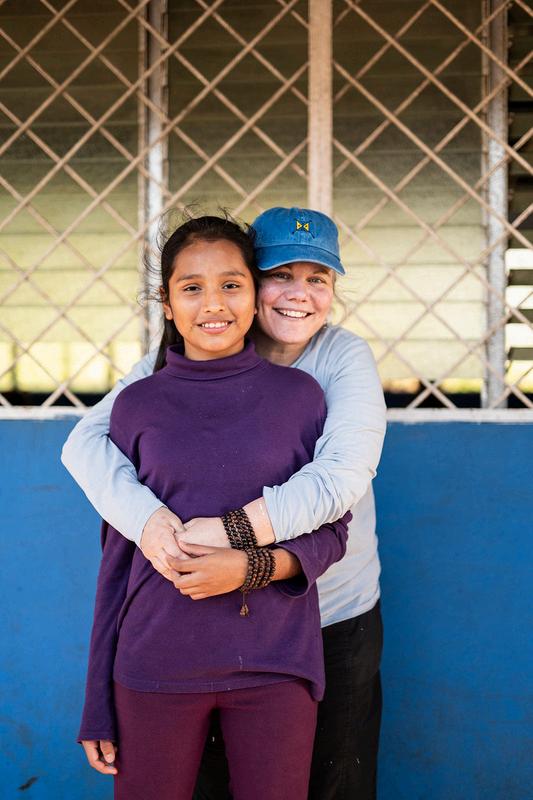

I’d rather tell you about Crystal, listening attentively to an elderly woman talk to us about her chronic health challenges As we were leaving her home, Crystal embraced her so empathetically that I’m sure she took some of her pain away.
I’d rather tell you about Alan, reconnecting with his Latino roots as he served, feeling the blood pulsing through the veins of Latin America, connecting the Colombia of his childhood to the Nicaragua beneath his feet.
This is the true meaning of service Painting, building, digging, planting all of these are important elements of service and community development, especially when we are providing new hope and opportunities for children and families However, none of those come close to the importance of being present, listening, and walking alongside those that have suffered for so long. The families we serve in Nicaragua have been trapped in cycles of generational poverty to the point of resignation. We live in a world where the poor are excluded, voiceless, invisible, untouchable. Our responsibility is to include them, to listen
Expeditions are of such vital importance to the families and communities that we serve.
This task that we have the audacity to undertake every day, trying to right this unjust world, is difficult. It’s like walking uphill on a rocky path, barefoot, in a rainstorm, with a Volkswagen strapped to your back. It’s not for ordinary people and it’s not for the weak of heart. But as legendary civil rights activist John Lewis said, “If not us, then who? If not now, then when?” It is our collective responsibility to protect the vulnerable

We are so grateful to Scott, Meg, Kathy, Cooper, Tricia, Lisa, Julie, Crystal and Alan for their time, love and commitment. Too much happened in a few short days to be able to capture it all in a single article, but I am certain that we are all changed, in some small or large way. We each became better through service. These nine incredible Outliers came to serve selflessly, giving everything they had to give, expecting nothing in return This is one more clear indication of why our community is so unique Lots of people talk about doing Outliers get it done
We will be (im)patiently awaiting the Outlier Humanitarian Expedition, version 3.0.
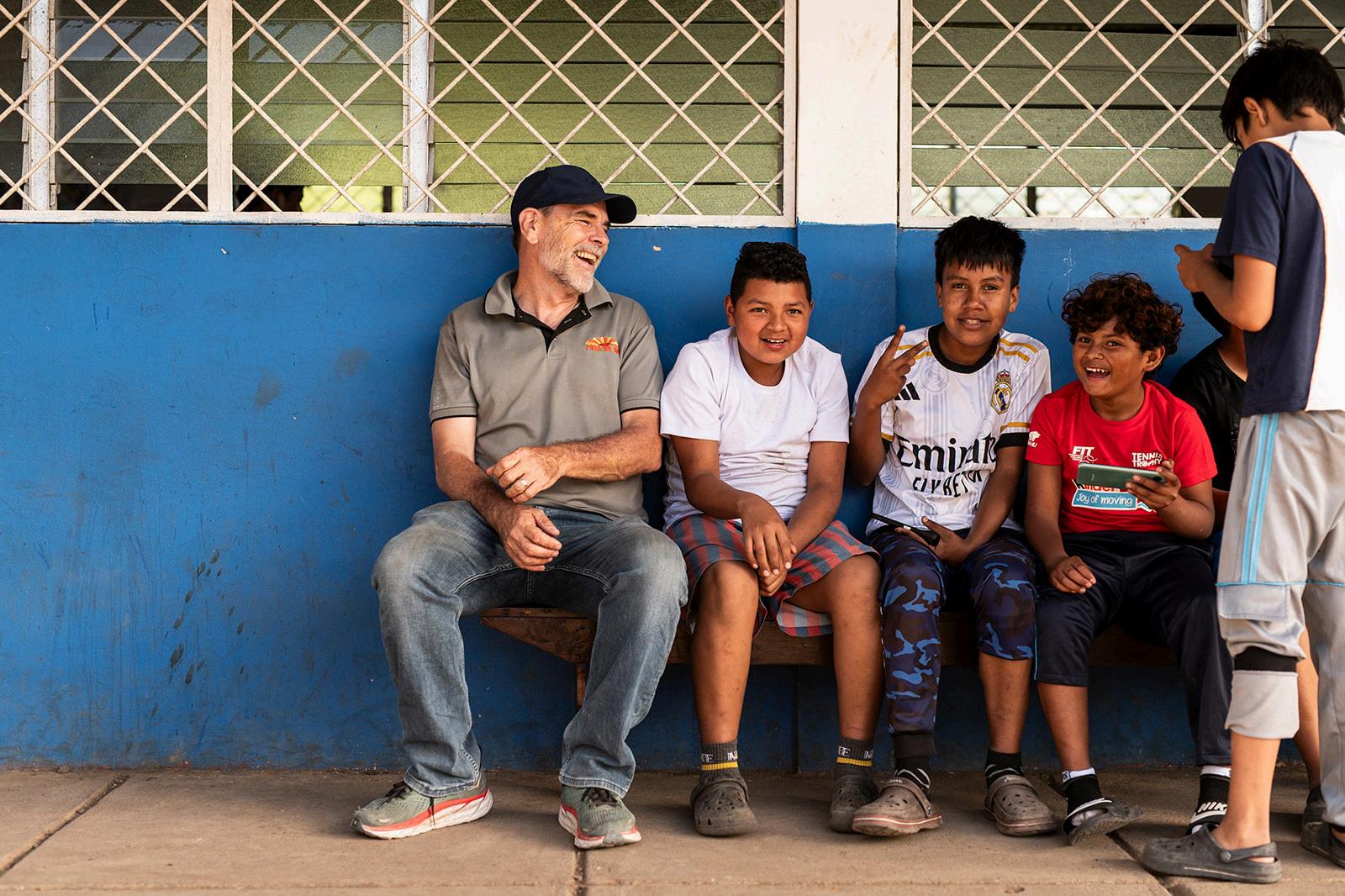
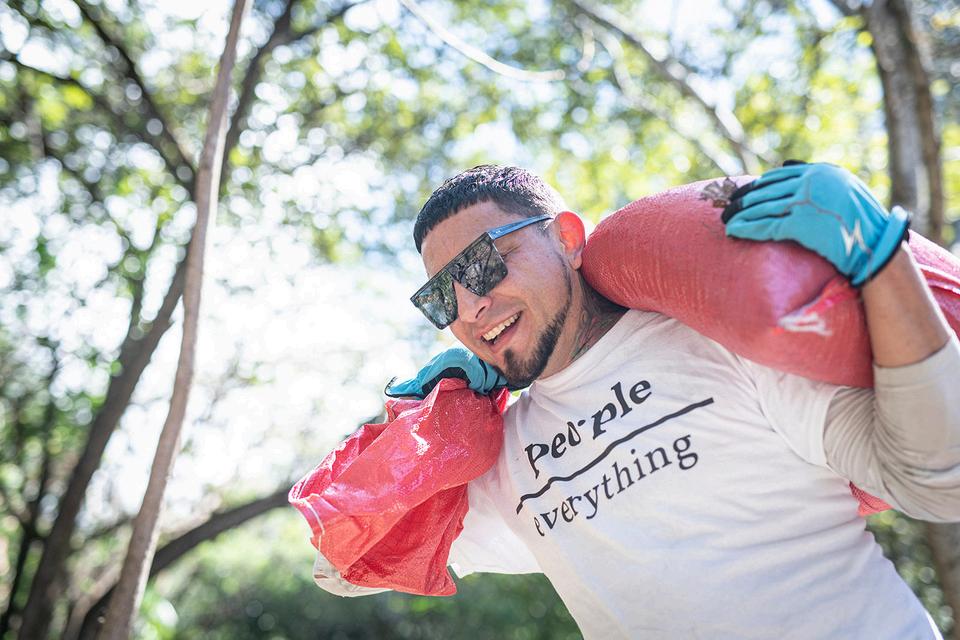






Pink Floyd, Supertramp, Toto, Entrepreneur, Technologist
You grew up in a very musical family. Your dad was a fixture on the Lawrence Welk Show and The Tonight Show with Johnny Carson. But you initially wanted to be an architect until Jeff Porcaro, co-founder of Toto and drummer for Steely Dan and the Bee Gees, made you rethink your career. Tell us what happened.
Scott: Well, actually, it was Jeff Porcaro and David Paich both founders of Toto who got me thinking differently. I got into a band with them when I was about 17, and they were 13 or 14 I was a trumpet player, though not a great one since my focus was on becoming an architect
At the time, I was working as a draftsman for a company called Audiodyne, drawing exploded views with a pencil and triangle. In those days there were no computers. But in this band, we kept winning all the Battle of the Bands competitions. I was still drawing during the day, but suddenly, I noticed something: a lot of girls in the front row. That got my attention and that was it, I decided music was the path.
It was a big moment for me, flipping my entire career I had just started college, fully planning to go to design school, but I pivoted I used my drafting skills to become a music copyist so I could support myself, because frankly, I could hardly play yet I hadn’t taken music seriously until then Playing music at that time was more for my dad since I grew up around him and his music career. He always told me, "Play for fun. It’ll be good to have gigs while you’re in school better than working at a gas station."

Then once I got into this band with Jeff and David, it was game over. I got the frickin’ bug of music, and suddenly, I was 24/7 music. I started studying with private teachers and practicing relentlessly At that time, even though we were just kids, we actually got a record deal offer But our parents wouldn’t let us take it, they wanted us in school they thought we were too young After that band Jeff and the guys' careers took off One of Jeff’s first gigs was doing the Sonny and Cher TV Show, from there he went on to play with Steely Dan, Seals & Crofts, and he recorded on thousands of other records. To this day, he’s considered one of the greatest drummers of all time. There is nothing like a Jeff Procaro groove, I sure miss that lad.
Meanwhile, as I watched them rise and Toto won six Grammys, I thought, Man, I want to be there too It took me about 10 or 12 years of non-stop study, but I finally got my call After playing with Seals & Crofts and Supertramp, they called me to play with Toto That was both thrilling and terrifying I practiced relentlessly leading up to rehearsals, putting in as many hours as I could every day. I knew I
had to walk into those rehearsals and just nail the music, because the last thing I wanted was to fall on my face in front of my friends.
When I got to rehearsal, I got all set up and ready to play, but Jeff handed me a cowbell and counted off the first tune I was so surprised At that point I realized he wanted to see how my time was, did I have a groove, before hearing me play an instrument Lucky for me, I eat, drink, and sleep metronomes Afterward, Jeff put his arm around me and said, “Okay, Page,” and smiled. Luckily I passed the groove test.
People always ask me what my favorite thing about playing with Toto was. My answer always is: I got to play cowbell with Jeff Porcaro on four songs. As a student of the groove, for me, it was electric– pure heaven to play with the master of time and feel We’d lock eyes and connect at a deeper level as we’d fall into the groove There’s this moment when everything locks in, and it’s like boom you’re floating in the pocket Almost better than sex As Jeff always said, “A groove is a delicate thing…”
Jeff was my guru. He laid the backbeat in different places depending on the song sometimes pushing it forward, sometimes pulling it back, but always putting it where the song needed it. Getting to play with my high school buddies again, after all those years, was one of the greatest and most fulfilling moments of my life It was a major accomplishment and a goal reached after years of studying and practicing to get to the point that I could play with them once again
You brought up Supertramp. That was Princess Diana’s favorite band, and you got to meet her. What was that like?
Scott: Yes, she loved Supertramp and we were invited to do a Royal Command Performance at Royal Albert Hall for The Prince’s Trust A few weeks before the performance they sent someone to train us a crash course in royal etiquette What to say, what not to say I was fascinated by it. The event was about raising funds to support entrepreneurs, which resonated with me and I was actually in a startup at the time. My father was a serial entrepreneur he had boat businesses, lighting companies, and candy shops. We had 26 donut shops at one time, and he also started amplified wind instruments and co-developed the famous guitar effect, the wah-wah pedal Entrepreneurship was baked into my childhood, so The Prince’s Trust really resonated with me
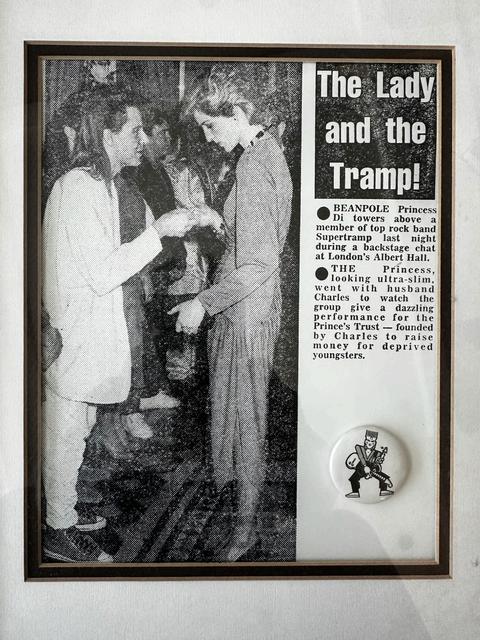

After doing our sound check we brought up to a special waiting of a sudden, we looked out the w and saw the whole entourage dr and all the security arriving The have been 50 press in the room, Royal entourage
Everyone was waiting in line to m Royal Family when Diana walked me, and I saw an opportunity I s toward her and handed her a bu from my startup business As sh at it, I started talking about the s entrepreneurs and how importa to support young innovative tale soon as she took that button, th cameras went wild. The next day London newspaper had a photo and Diana. The headline? Lady a Tramp. It was pretty funny to see since I was the American in a Br band

I still have the royal handkerchie stack of photos from that day I'll never forget Prince Charles walking through the line, dealing with all the people, the photographs, the cameras going off I said to him, "This has to be pretty tough, dealing with this every day." He then leaned over to me and whispered, "It's not easy being a professional nice guy," and we laughed. The one thing that struck me most from this experience was Diana herself her presence, her radiance, and she was even more stunning in person than in photos It was a moment I’ll never forget
You
almost did not join Pink Floyd. Did David Gilmore talk you into it? And what’s your relationship with him like?
Supertramp he guested on one of their albums. We hung out that night, and I invited him to a gig I had right down the street from Rick’s studio, where we were recording. It was at a club called Josephina’s, where my band, Hang Dynasty, was playing. He came and hung out, and I invited him to another event I was working on the next week an experimental project merging sound and picture in a new way
He came to that event and then a few days later, I got a call to lay down some solos on a Pink Floyd record Afterward, Dave rang me up personally and told me he loved what I did on the record: “We’re going on tour for two years, and we’d love you to join the band.” And I said, “Let me think about it.” Scott: I first met Dave while playing with
The truth? I barely knew Pink Floyd I remembered Have a Cigar, but that was about it I called my buddy Danny Sawyer and casually mentioned the offer He lit up and said, “You got called from Dave Gilmour? To join PINK FLOYD?!” He said, “You gotta do this gig.” Not knowing anything about Pink Floyd, I drove to Tower Records at 2 AM, bought several Pink Floyd albums, listened to them, and thought I should probably do this. I called Dave back the next day and said, “Let’s go.” Best decision I ever made.
In 1987, you went on a world tour —199 shows. That sounds grueling. How much of it was fun and how much of it was just grueling?
Scott: Honestly? Not grueling at all The production was so massive, we could only play three or four days a week We had two full steel stages leapfrogging around the world The scale was incredible hundreds of crew members, massive lighting rigs, and an enormous sound system. Every night felt like a spectacle and it was.
Traveling was first-class We stayed in five-star hotels, had our own 727 stretch plane just 22 seats, three stewardesses, and full-course meals. Everything was taken care of for us. No lugging bags, no long bus rides. It was as cushy as touring could possibly be. I can say it ain’t like that anymore... lol.
The crowds were mind-blowing. We played to an average 70,000 people a night, sometimes more Venice? That was closer to 400,000 people And that energy there’s nothing quite like stepping onto a stage and feeling that wall of sound from an audience that massive It’s electrifying

It was like a two-year vacation that just happened to include what I love: playing music.
In 1989 you played the Moscow Music Peace Festival with Bon Jovi, Ozzy Osbourne, Scorpion, Skid Row, and Cinderella. What’s it like playing for 135,000 people?
Scott: It’s interesting, because it’s exhilarating, but also oddly impersonal There’s a huge barrier between us and the audience You see a sea of people, but they look tiny from the stage. You don't really feel the intimacy that you get from a smaller venue. The real magic for me is the intimate club gigs. I love getting up close with the fans and rockin’ everybody gets to take the ride together then. During our Floyd tour, after our stadium shows, we would go play a local club and play under a fake name, The Fishermen’s No Pink Floyd songs just covers That’s where we really connected with our fans Those were really special gigs

You also played with Spinal Tap. How did that come about?
Scott: My buddy Jeff Baxter from the Doobie Brothers and I were walking down the street in New York when a limo pulled up, and out jumped Harry Shearer, the comedian and actor from Spinal Tap. He invited us to come play with Spinal Tap at Radio City Music Hall that night. Of course, we jumped at it. Playing with them was a thrill. I even have a Spinal Tap shrine at home And get this I put Spinal Tap (and Pink Floyd) on the moon I haven’t told them yet, but it’s true I added both Pink Floyd and Spinal Tap into the Lunaprise Museum that landed on the moon on February 22 2024 Pink Floyd did Dark Side of the Moon, but I actually put them on the dark side of the moon.
You had an acting career Hardy Boys, Nancy Drew Mysteries, The Young and the Restless. Did you ever consider acting as a career, or was it just something that happened?

Scott: The acting part came from being a musician I did The Young and the Restless for about a year and a half because Michael Damien, who played Danny Romalotti, had a rock band on the show. I was in that band.

Once a month, we’d tape four episodes in one morning. It was a great gig I’d work one Friday morning, get paid for four shows, and be set for the month. It gave me the financial freedom to focus on my music and entrepreneurial ventures I loved that gig for the freedom it gave me at the time
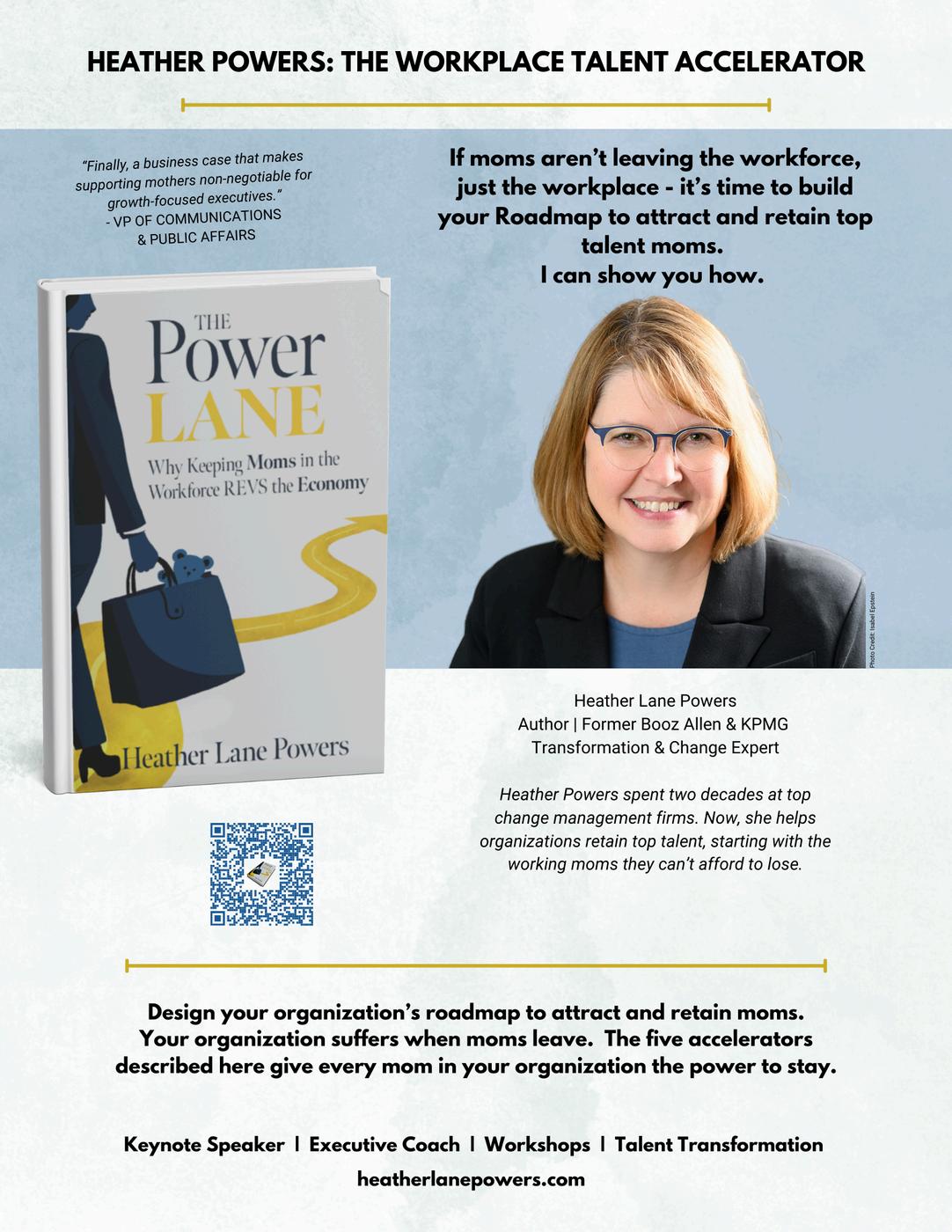
What do you listen to? If you open up your playlist, what’s on it?
Scott: It’s crazy but I don’t even have a Spotify account. Not that I’m against it, I just don’t listen to much music anymore. I listen to a lot of spoken word; I’m in learning mode
When I do listen to music, it’s the same few records: Nat King Cole Live at the Sands, Stevie Wonder’s Greatest Hits, Junior Walker, Wes Montgomery Each time, I focus on different elements sometimes just the kick drum, sometimes the phrasing. When I put one of those on, it gets better every time I hear it. Stevie Wonder's solo on For Once in My Life, for me personally, is the greatest instrumental solo I've ever heard.
It’s a little funny to me, not to pay much attention to listening to music anymore. Back in the day, I was obsessed. I remember when Walkmans first came out I was in Japan on tour, and they were completely sold out in the United States You couldn’t get one anywhere The moment I got my hands on one, I was in heaven walking around Tokyo, listening to high-fidelity sound in my ears for the first time That was magic That was when I listened to a lot of music
"Once I got into this band with Jeff Porcaro and David Paich, it was game over. I got the frickin’ bug of music, and suddenly, I was 24/7 music."
-Scott Page



Retired US Army Command Sergeant Major, ESPY Winner, US Women Army Hall of Fame, US Veterans Hall of Fame, Earned a Bronze Star and Purple Heart, Author of Lead from the Front, Founder of Team UNBROKEN
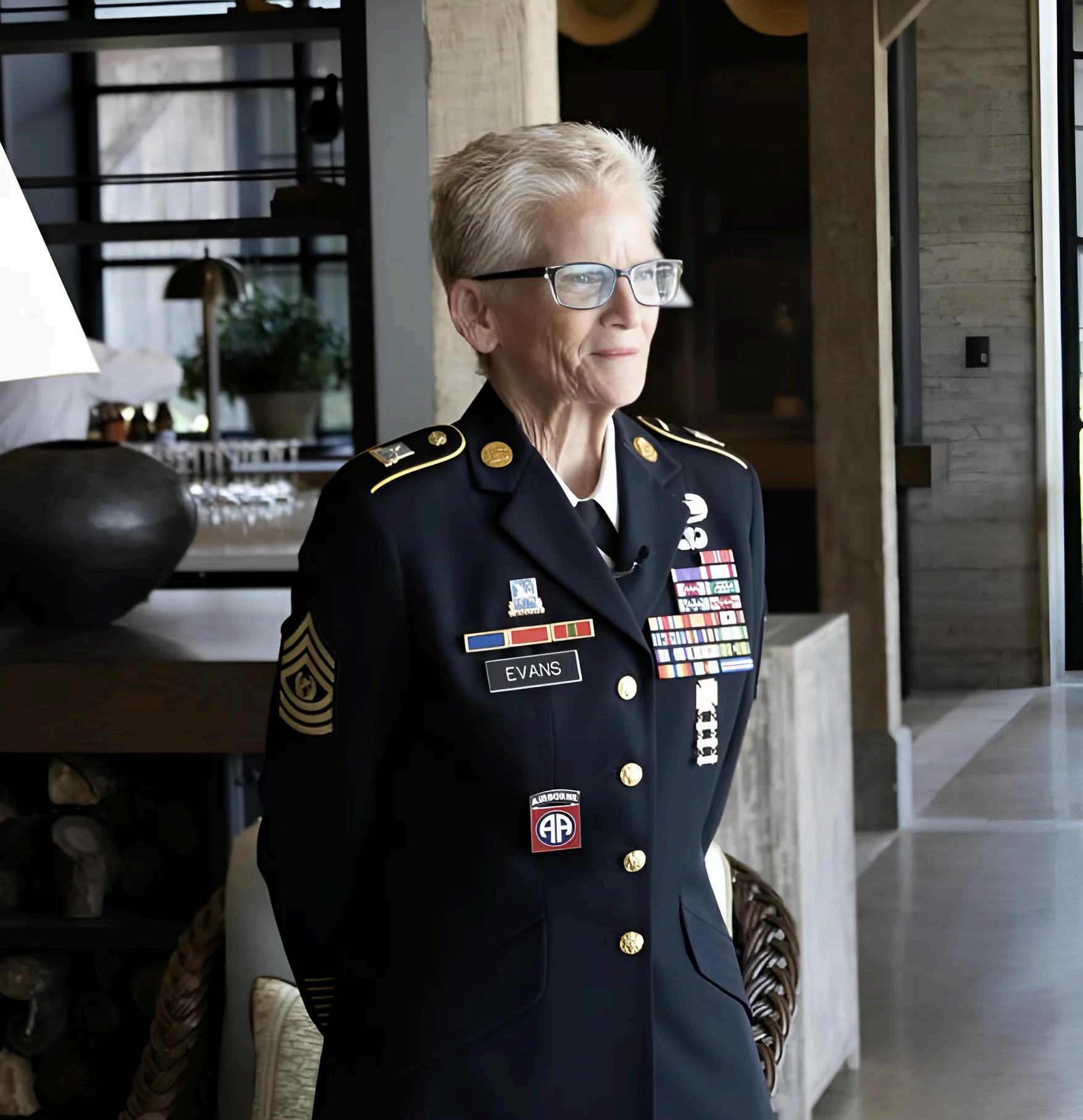

Q:What'sthemostaudacious challengeyou'veevertakenon?
TrainingandcompetingintheWorld's ToughestRace
Q:In2022,youwonanESPY,the PatTillmanAwardforService. Tellusaboutthatexperience. Ifeltsohumbled,andcertainlysome impostersyndromewaspresent.The experiencewasbeautiful Everyonebut mewasaprofessionalathleteora celebrity,buttheyallweresoverykind andgracioustome.
ThefolksatESPNweresowonderful. ThebestmemoryIhaveofthatnightis aftertheESPY's.Iwasinvitedtothe afterparty,butIdidnotwanttogoin uniform.Ididnothaveafancydress,so IworeTeamUNBROKENsweatstothe afterparty.Everyoneelsewasin tuxedosandballgowns.Ihadagreat time
Q:YoucompetedintheWorld’s ToughestRace:Eco-Challenge Fiji,hostedbyBearGrylls,with anadaptiveathleticteamcalled UNBROKEN.Howdidthat happen?
MydearfriendandadventurerErik Weihenmayercalledmeand suggestedthatItakeateamof adaptiveathletestocompeteinthe World'sToughestRace.
“THE WORLD IS FULL OF PEOPLE WHO ARE ATTEMPTING TO LIVE THEIR BEST LIFE, AND IT IS MY JOB TO HELP THEM ALONG.”
-COMMANDSERGEANTMAJORGRETCHENEVANS


When I submitted our team application, we were initially told “no,” but after a conversation with Mark, Bear, and the race director Kevin Hodder, they understood the WHY of Team UNBROKEN It is to demonstrate grit, gumption, resilience, and hope to others like us who had ensured life-altering injuries, illnesses, and traumas. We believe our disabilities (mixed abilities) do not define who you are or what you can accomplish.
Q:YoureceivedaPurpleHeart aftera27-yearcareerintheUS Army,whereyouretiredasa CommandSergeantMajor, whichisthehighestenlisted rankintheArmy.Tellusabout theincidentthatledtoyour injuries.
Atthetimeofmyinjuries,themilitary stillhadregulationsthatprevented femalesfromservingindirectcombat orbeingassignedtounitsindirect combat.Theseregulationswere outdated,andnotenforced.So,whenI gotinjuredthepaperworkwasnot submittedatthetime LaterIranintoa GeneralOfficerwhoIservedwithin AfghanistanandheaskedmewhyI wasnotwearingmyPurpleHeart,andI toldhimthatIhadnotreceivedone.He wasdumbfounded Hemadethe correctcallsandgotitcorrectedalmost immediately.Peopleaskmeallthe time,"Aftertheregulationchanged, whydidn'tyouaskforyourPurple
Heart?" For me, it wasn't about the medal I knew what had happened, and the military and the Veterans Administration took good care of me and that was enough. But the day (August 5, 2024) that Major General Hope Rampy pinned on my Purple Heart was one of the best days of my life. Most of my family and friends were present, and the timing was actually perfect
Q:Ifpeoplecouldtakeonething fromyourbook,"Leadingfrom theFront,"whatdoyouhopeit wouldbe?
Servinginthemilitaryishard, demanding,andrequiressacrifices,but wearepeoplejustlikeeveryoneelse. Wewantandneedfriends,mentors, passionandpurpose,and,most importantly,grace.Beingexposedto verytraumaticeventsrepeatedlycan changeaperson,andsometimeswe cangosideways.Weneedgracein thosemoments.Understandand forgiveuswhenwegosideways.


Q:JoiningtheArmyat19in1979 seemslikeanoutlier-ishchoice. Whatmadeyouwanttoserve?
Honestly,Iwasstarvingandattempting toliveonmyown,anditwashard.I couldhavequitschoolandworkedfull timeinacivilianjob,butwhenIsat downandreallythoughtabouthowI wantedtolive,theideaofbeinginthe militaryappealedtome.Iliketeams,I likechallenges,andIlikehelping others.TheArmyofferedallthatand threemealsadayandapaycheck JoiningtheArmywasthebestdecision Ievermade.Ihadtheprivilegeof seeingtheworld,meetingpeoplefrom allwalksoflife,feedingthehungry, freeingtheoppressedandbeingpartof somethingbiggerthanjustme.
Q:YouandthelegendaryTV producerMarkBurnett,known forbeingtheproducerof Survivor,SharkTank,TheVoice, andTheApprentice,among others,havehadaninteresting relationship.Tellusaboutit. Markisanamazingman. Heisa Veteranaswell.


Mark was so worried about me getting hurt during the race that he constantly would ask the race people, "Where are Gretchen and team UNBROKEN?" When we failed to meet the time limit for the last check point, he flew in a helicopter to tell us himself. He wanted us to know how proud he was of Team UNBROKEN I promised Mark that Team UNBROKEN would continue to participate in adventures that demonstrated the power of rope teams, grit, gumption and resilience and tell our stories It was important to him that we continue to give hope to others like us. We are keeping that promise. He told us Team UNBROKEN reminds him of the power of YES. YES gives people hope, gives opportunities, offers further collaboration, builds bridges and provides progress. He said YES to Team UNBROKEN and that changed everything.

Q:Youareoneofthemost decoratedfemaleveteransinUS history.Whataretheattributes thatledtoyourstoriedcareer?
Ilovepeople YesIworkedhard,I acceptedchallenges,rarelygaveup, butreallyIthinkmyabilityto demonstratetrueloveforothersis whatmademeagoodleader.
Whenyoucanlookpastbudgets, briefings,battles,andthemillionsof thingswetendtofocuson,andinstead focusonthepeopleonyourteamor peopleyouareattemptingtohelp,you realize:withoutthepeople,therewould benowaytoaccomplishanything.Nor wouldtherebejoy.
WhenIreflectbackonmycareerinthe military,andevennowwithTeam UNBROKENandmyspeakingcareer,I amveryawarethatitisallaboutthe PEOPLE.
Q:Youlost95%ofyourhearing in2005duetotheblastin Afghanistan.Howhasthat impactedyourlife?
I don't go to concerts anymore. HA! No really, it was very hard in the beginning because I had been a hearing person for 46 years. A silent world is a scary place in the beginning My other senses had to pick up the slack. I did learn to lip read, and that truly helped with communication, but there were initially a lot of challenges I was determined to not let being deaf keep me from my dreams, so I just didn't act like a deaf person. I would not tell people I was deaf and wing it as best as I could, until someone tried to get my attention from my rear. Then I was outed.
Being deaf has truly made me a better person. I am more sympathetic, empathetic, and patient. I realized early on that everyone is dealing with something. The world is full of people who are attempting to live their best life, and it is my job to help them along. I had a fantastic rope team who supported me in all my crazy ideas, and this gave me confidence to not let deafness rule the day.


Do you have any audacious goals that you're looking to achieve in the near future or long-term?
My most audacious goal would be to climb Mt Vinson in Antartica, but it is wicked expensive. This is probably not audacious, but I want to compete in burro racing. I am just intrigued by this sport.
Team UNBROKEN has a full schedule We will be running the Cowtown Marathon in February, Antelope Canyon 50K in March, London Marathon in April, Chicago and Dublin, Ireland in October. Somewhere in there we hope to find something crazy to do.



Army Special Forces Green Beret, Entrepreneur
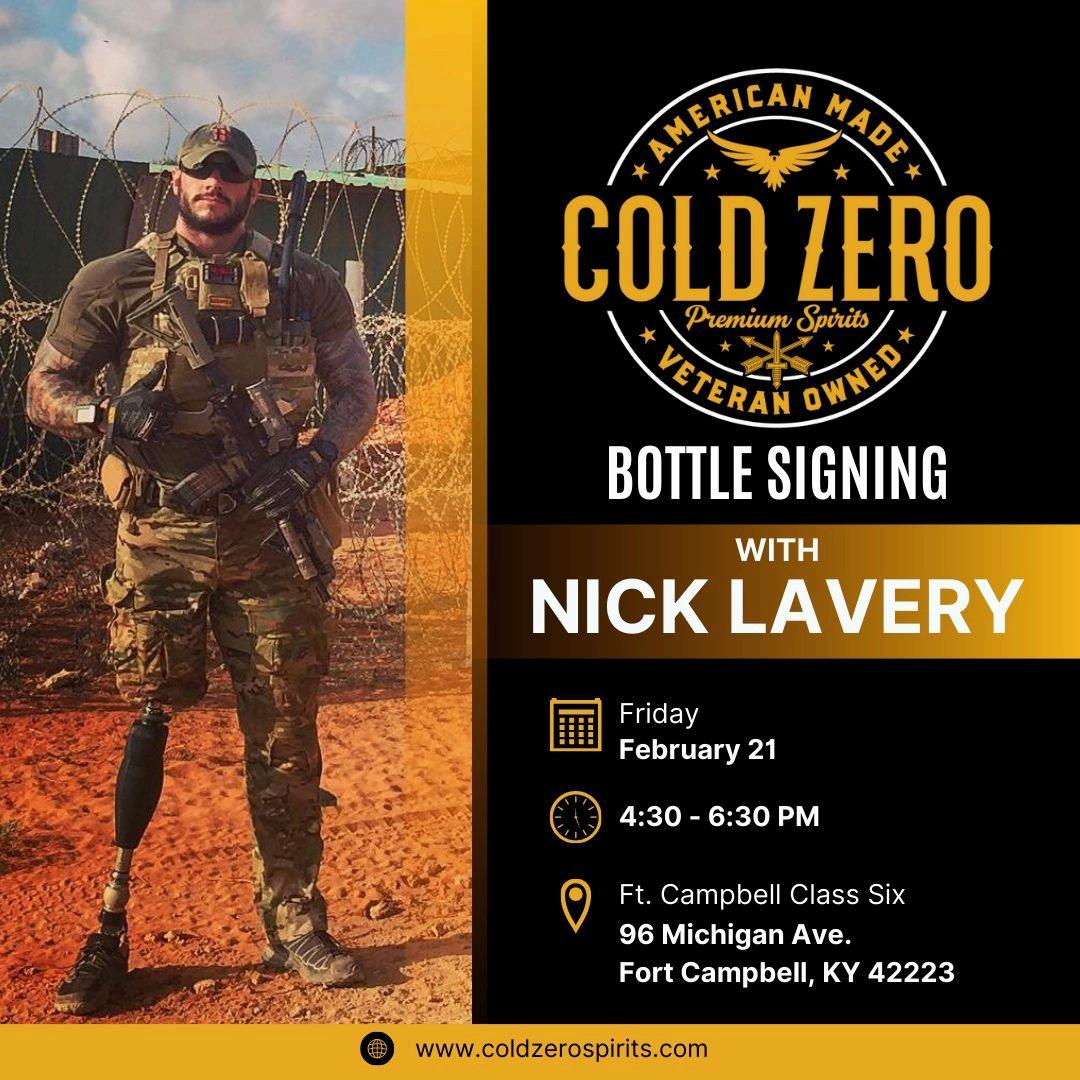
Q:What'sthemostaudacious challengeyou'veevertakenon?

ToughtosayMOSTaudaciousasIhave takenonmultipleoverthecourseof mylife.Certainly,tryingtogetback ontoanSFOD-Ainordertoreturnto combatfollowingthelossofmyleg comestomind.BecomingaoneleggedSpecialForcesCombatDiver wouldcertainlybeonthelist.Startinga businessisanother.IheardAlex Hormozisay,whichIthinkheoriginally heardfromElon,"Runningastart-upis likechewingonbrokenglasswhile staringintotheabyss."Thisis100% accurate.Whileamazinginmanyways, itisjustsohard,andthelikelihoodof "makingit"isjustsoslimthatyoureally doneedtobesomewhatoutofyour mindtogetintothisgame.
Q:You'vealwaysbeenagifted athlete,butyougravitatedto mixedmartialartsandfootball. Whataboutthesetwosports, oneanindividualsportandone ateamsport,appealedtoyou? Iwouldn'tsayIwasallthat"gifted", otherthanperhapsmyheight.I'dsayI developedenoughskillovertimeto eventuallycompeteattheNCAAlevel. Tobehonest,andthisissomething thathascometomeafteryearsof reflection,IthinkIgravitatedtowards footballbecauseIwantedtobe acceptedbythe"coolkids".Istruggled sociallymyentirelifeasakidand youngadult.Iyearnedforacceptance. Gettingintocombatsportswasaresult ofthesameneed,onlyhereIwantedto befeared.Ispentsomuchofmyyoung lifeasasmall,scared,insecurekid I wantedtobeontheotherendofthat spectrum.

“DISCIPLINE CREATES HABITS, HABITS ENABLE CONSISTENCY, AND CONSISTENCY IS A REQUIREMENT FOR SUCCESS.” -NICKLAVERY

Q:WhenyouenteredtheArmy almost18yearsago,didyou knowthatyouwantedto becomeaSpecialOperations guy,specificallyaGreenBeret?
100%.OnceImadethedecisiontojoin themilitaryaftercollege,IknewI wantedtobeinSpecialOperations I didmyhomework,learnedaboutthe variousSOFunits,anddecidedto pursuethepathofbecomingaGreen Beret.Thiswasnotintendedtobea careerorlifestyleforme Thegoalwas toenlist,gettothetipofthespear,kick someass,getsomepaybackfor9/11, andgetoutoftheArmy.Thisofcourse didn'thappenbecauseonceIbegan doingit,Ifellinlovewithit
Q:March11,2013,youlostyour leginanattackinAfghanistan. Telluswhathappened.
MyODAfellvictimtoaninsiderattack, akaa"GreenonBlue" Amemberofthe AfghanNationalPoliceopenedfire ontomeandmyteamwithaPKMbeltfedmachinegunfromapproximately 30feetaway.Thiswastheinitiationofa pre-plannedcomplexambush The resultwas12US casualties,including3 KIA,andisconsideredthemost catastrophicinsiderattacksincethe startoftheGlobalWaronTerror.Iwas hit4-5timesinmyrightleg,onceinmy lowerleft,andmyscrotumwas lacerated.Myfemurwasshattered, femoralarterysevered,andIreally shouldhavediedthatday.
Q:Youweredeterminedtorequalifydespiteundergoing40 surgeriesandhavinga prostheticleg,becomingthe firstpersoninU.S.military historytoachievethis.What fueledyourdesiretoreturnto combat?
1)Faith--afirmbeliefinsomethingwith orwithoutproof.Isimplybelievedit waspossibledespiteessentiallynobody aroundmethinkingthesame.
2)Competitiveness--Iliketocompete, andIliketowin.ButasmuchasIlove winning,Ihatelosingmore Therewas simplynowayIwasgoingtoloseinthis manner.Iamgoingtofindawayto comebackandmakeyouregretnot killingmewhenyouhadthechance.
3)Passion--IlovewhatIgettodo.And yes,admittedlyIamabitofan adrenalinejunkie.Ilikejumpingoutof planes,slidingdownropesonto rooftops,drivingfast,blowingshitup, etc.butthetrueloveofthegame



comes by virtue of the people I get to do it alongside of. These are some of the greatest humans to ever walk the earth: people who are willing to sacrifice enormous amounts of themselves, push to the absolute extremes of human capability, and somehow find a way to push beyond that. I love the people.
4) Purpose-- being a part of something bigger than yourself that creates impact on others I found a sense of purpose with this profession. In fact, at that time, I was 100% certain that God put me on this planet to do this one thing That was it So my choices following my injury were simple... roll over and die or find a way to get back to doing the thing you were born to do. That's it.


Q:YourwifeisintheArmyand hasbeendeployedoverahalf dozentimes.Howmuchhave herexperienceshelpedyoudo somethingnoonethoughtwas possible? Shewas,assheremainstoday,my teammate.Shewas,ofcourse,ameans ofsupport,butwenavigatedthis journeytogether BothsheandIhave concurrentlysetoursightson individualaudaciousgoals.Wesimply workedtogethertoaccomplishthem.

Q:At6'5",you'reamountainofa man.Whatdoyoudotostayin suchincrediblecondition?
Icouldgoonfordayshere,butitall beginswithDISCIPLINE.Thatisthe foundation.Disciplinecreateshabits, habitsenableconsistency,and consistencyisarequirementfor success.Ilivealifeofroutinesbutalso recognizetheneedtobeadaptable, becauselifedoesn'talwayscooperate.I trainhardphysically.Iamparticular withhowInourishmybody Iprioritize sleepandrecovery.Ifeedmybrainwith constructivecontent.Ifocusonthe thingsthatcreateprogress,anddoing soenablesmetoblockoutthe distractions
Q:Whatdoyoumeanwhenyou sayhumilityisaweapon?
Ihaveworkedalongsidesomeofthe mostsavagewarriorstheworldhas everknown.ThisincludesGreenBerets butalsoindividualsfromavarietyof otherSOFunitsandthreeletter agenciesfromaroundtheworld.The absolutebesthaveanenormous degreeofhumility.TheyareHONEST externally,butperhapsmoreimportant internally.Theytellthemselvesthe truth.ThehaveahighdegreeofSELFAWARENESS.TheydeployGRATITUDE. TheyLISTEN.Theytreatotherswith RESPECT Thesearesomeofthe ingredientswithinhumility,anditisan undeniablethemeamongthehighest performersIhavehadtheprivilegeto bearound.
Q:Youhavetwoyoungsons. Whatareyourdreamsforthem?
Thattheygrowupasandbecomekind, humble,selfless,savagewarriorleaders withahighdegreeofemotional regulation,drivenbyintegrity, ownership,andambition.Anditismy jobtoinfluencetheminbecomingjust that.

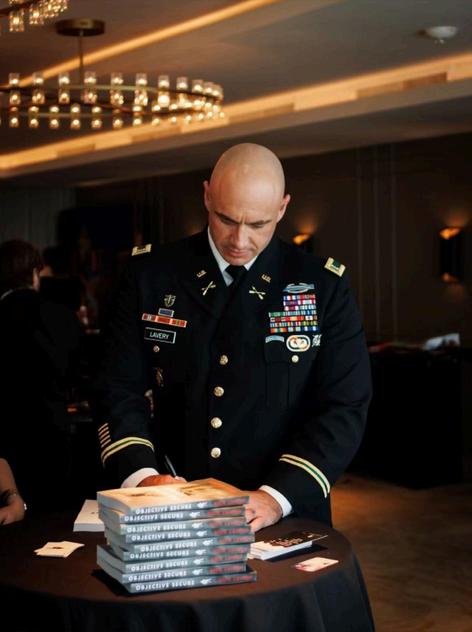

Do you
have any
audacious goals that you're looking to achieve in the near future or long-term?
Build an enterprise that enables organizations and individuals to become the best versions of themselves. This is not a dress rehearsal, and the clock is ticking. The time is now.
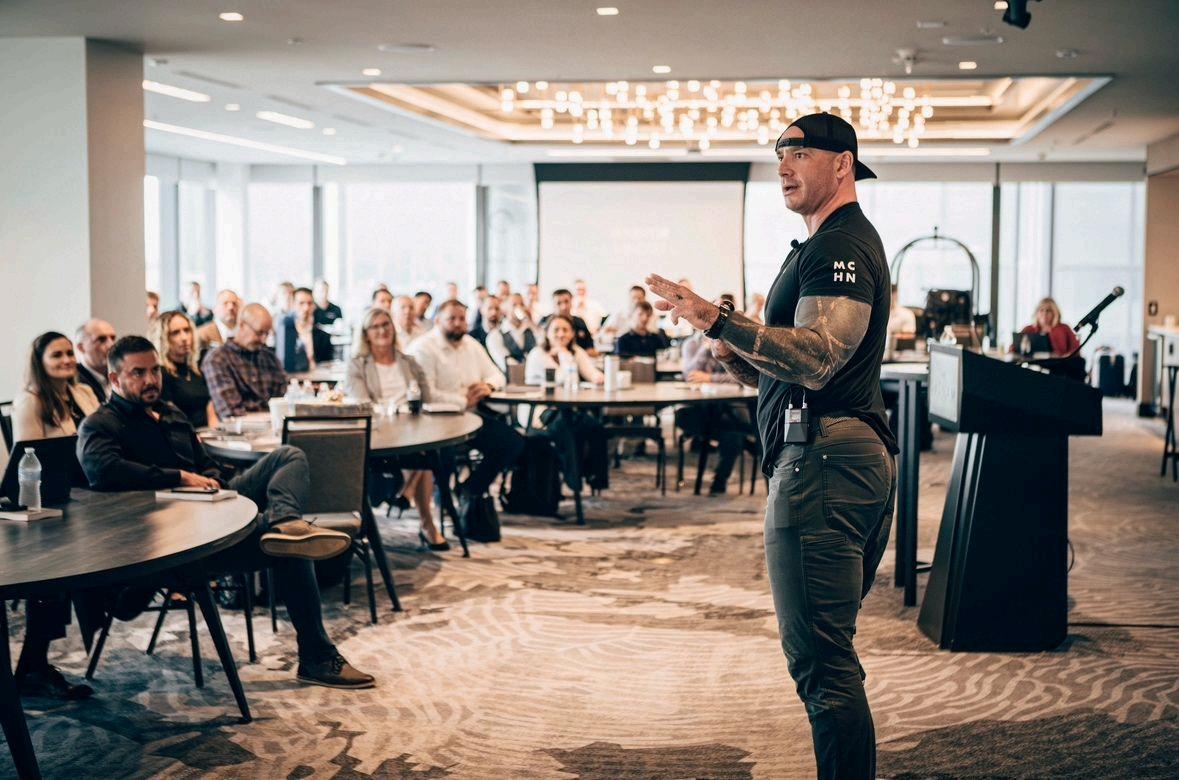


Musician, Actress, Speaker, Writer, Designer, Accomplished Painter, and Founder of We The Dreamers
Editor’s Note: How fun it is to feature Kate Voegele and her husband Brett in the same issue, each making their own mark in their own way

Q:What'sthemostaudacious challengeyou'veevertakenon?
Themostaudaciouschallengeforme hasbeenchoosingacreativecareer thatdoesn’tfallintoonetidycategory orfollowacookie-cutterlinearpath.I signedmyfirstrecorddealat19and soldoverhalfamillionalbums,but quicklyrealizedIwantedtopush beyondtheboundariesofwhat traditionalsuccesstendstolooklikein themusicindustry.Iheldgalleryshows featuringmyart,anddesignedapairof sunglassesforOakley,whowas sponsoringmytoursatthetime I startedactingandendeduplandinga four-seasonstintontheCW’sOneTree Hill.Ilovedexploringstorytelling throughacting.It’sbeenchallengingto navigateandbuildmyownversionofa creativecareerthatdoesn’tseemto haveadefinitiveblueprint.However,it’s beenincrediblyrewardingtoworkin music,acting,art,anddesigninaway thatkeepsmeinspiredandfeels authentictomeasanartistand storyteller.
Q: What were some of the most memorable moments from your role as Mia Catalano on the hit TV series One Tree Hill?

Working on One Tree Hill was overall a really rewarding creative experience. Because my character, Mia, was also a musician, her songs were my songs. I got the opportunity to play about a dozen of my own original songs over the course of four seasons on the show. Another highlight was learning the craft of acting, and exploring how to tell the same stories I’d been telling as a songwriter through acting in a scene. The show and its leadership came with some really difficult issues to navigate, but the cast and crew were (and still are) a really fantastic tight-knit group of incredible people, so becoming part of that family and having each other to lean on was really meaningful


Q:Yoursecondstudioalbum,"A FineMess"debutedatnumber 10ontheBillboard200.How muchdoescommercialsuccess likethatoccupyyourthoughts asawriter?
Ithinkbalancingyourappreciationfor commercialsuccessandprotectingthe authenticityofyourartisticvoiceisone ofthethingsallcreativesstrugglewith, andIamdefinitelynodifferent.Iwas reallyfortunatetohavetotalartistic freedomwiththatalbum.BecauseI hadwrittenmanyofthesongsby myselfwhileontheroad,almostas therapytoworkoutwhatwasgoingon inmylife,itfeltreallygoodtosee commercialsuccesshappenfor somethingthatfeltauthentically"me." Eventhoughit’snevereasytoremove thepressuretofollowupeverysuccess withabetterone,Ithinkknowingthat themusicIwrotefromaveryreal, vulnerableplacehadtranslated
enough to land it at number 10 helped me forge ahead. It reminded me to just try to write something true and real again whenever the self-doubt started creeping in.




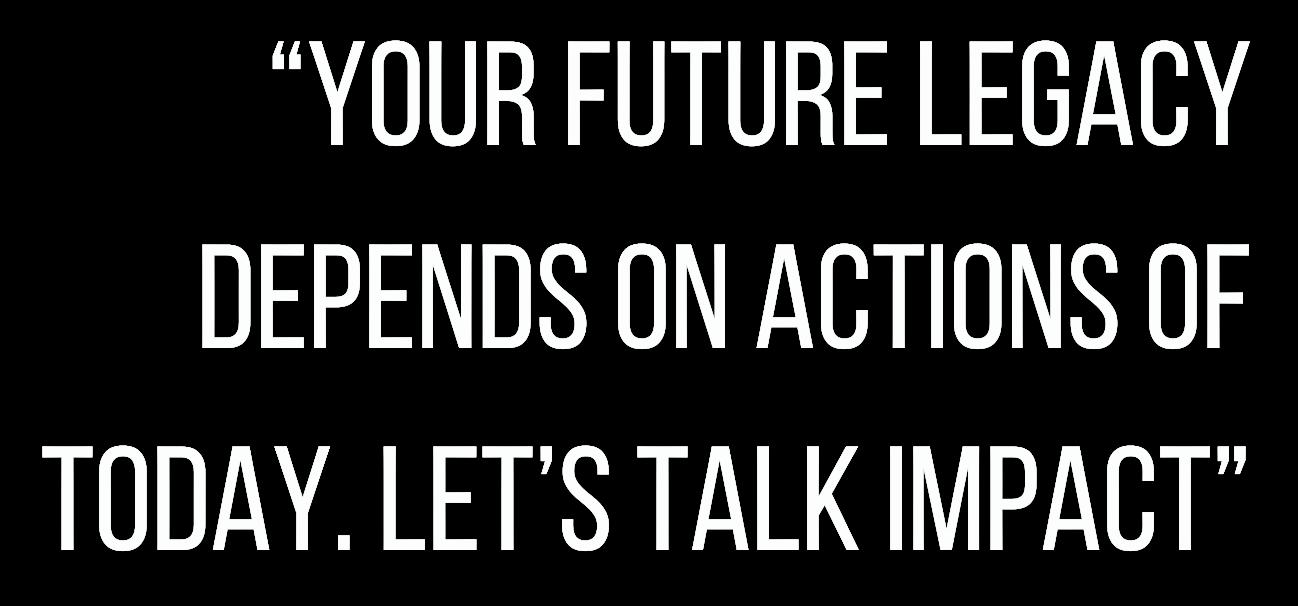




EQUITY INVESTING INVOLVES RISK OF LOSS AND IS NOT SUITABLE FOR EVERY INVESTOR. THE
MONEY. PAST
FarmAidwassuchacoolexperience.I gottoplaythefestivaltwoyearsina row,andIthinkthehighlightwas definitelythatIgottobringmy grandma,wholovedWillieNelson enoughtoproclaimherlifelongsecret desiretobraidhishair.Shedidn’tend upgettingtobraidhishair,butsaying hiandseeingmesharethestagewith himatFarmAidwasaprettygood tradeoff.Thefestivalalsosupports familyfarmsandbuyinglocal,whichis somethingIreallybelievein Overallit wasanincrediblelineuptobeapartof soearlyinmycareer,andseeingmy nameonashirtwithguyslikeJohn MayerandWilcowasprettysurrealfor ateenagekidfromOhio
Q:Tellusaboutyourlifestyle company,WeTheDreamers.
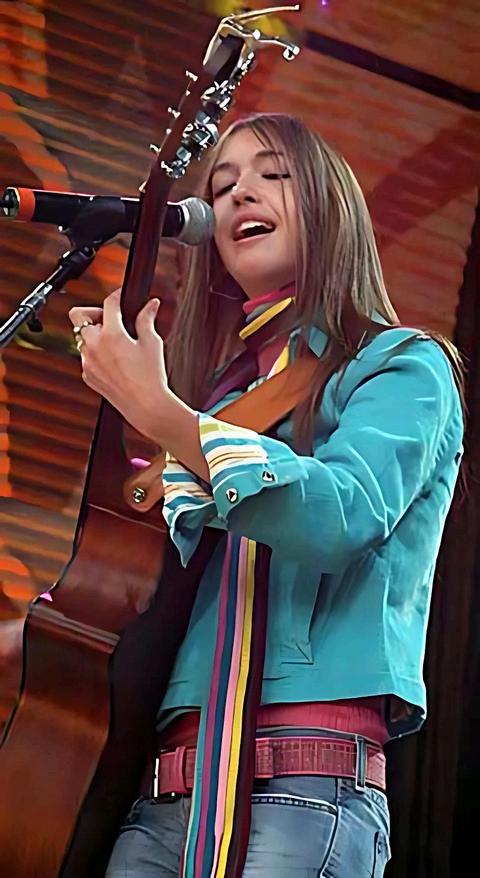
WeTheDreamersismyplaygroundfor allmydesignandcreativework,and alsoaplatformwhereI’vebeendoing somepublicspeakingoncreativity.We haveablogandaYouTubechannel whereIdocumentallthehomedesign projectsI’mworkingon,andit’sbeena reallyfunspacetoshareallofmy creativeendeavorsoutsideofmusic andacting.Rightnowthebestwayto describewhatIshareviaWeThe Dreamersisinspirationforawelldesignedlifeandhome.Myhopeis thatourcontentinspirespeopleto get creative, start a new project, or just generally make a mess in some sense. It’s all about celebrating the maker and the dreamer inside all of us.


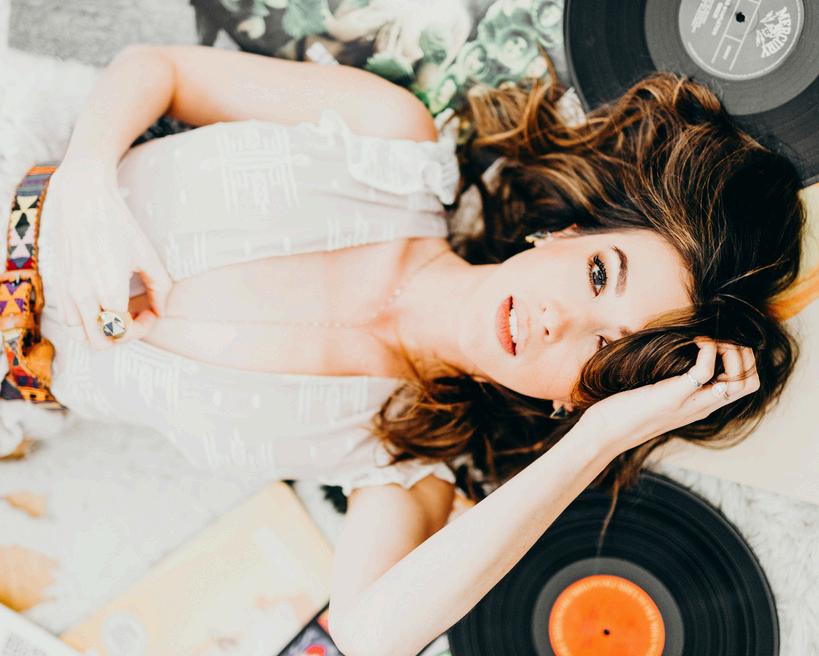
Q:You'reasinger,asongwriter, anactress,anaccomplished painterandanentrepreneur. Wheredoesthatseemingly unlimitedspringofcreativity comefrom?
Ihavetogivealotofcredittomy parents,whoalwayscelebratedmy creativityandreallyletmegowildwith it.Theyalwaysletmedesignmyown roomanddowhateverweirdstuffI wantedtothewalls,andreallyfostered anythingimaginativeandartistic.I thinkmakingartandmusicdidforme whatbeingpartofasportsteamdoes forsomekids-ithelpedmefindmy voiceandworkthroughalltheweird thingsinlifethatnoonecanreally prepareyoufor.Forme,it’sreallyall aboutstorytelling,andfindingthebest mediumtotellitwith,inthehopesthat somebody,somewhere,seesitorhears itandrealizesthey’renottheonlyone who’sfeltthatway.That’swhatit’sall aboutforme.
Q:Tellusaboutyournewband, YourFutureGhost.
Your Future Ghost is a new dirty synth-rock band I started with a good friend of mine, Mike Grubbs. It has a completely different feel than any music I’ve ever created on my own. We’ve released four singles and have our debut album coming out this year, and more than anything the music is just incredibly fun and unapologetic. We like to say that the music itself wears no makeup, drinks too much, and has bad tattoos- and it’s really meant to feel like finding the escape in a post-apocalyptic world. I’m so excited to share the whole album this year, and hope a lot of people find themselves jumping up and down on their bed to these songs.
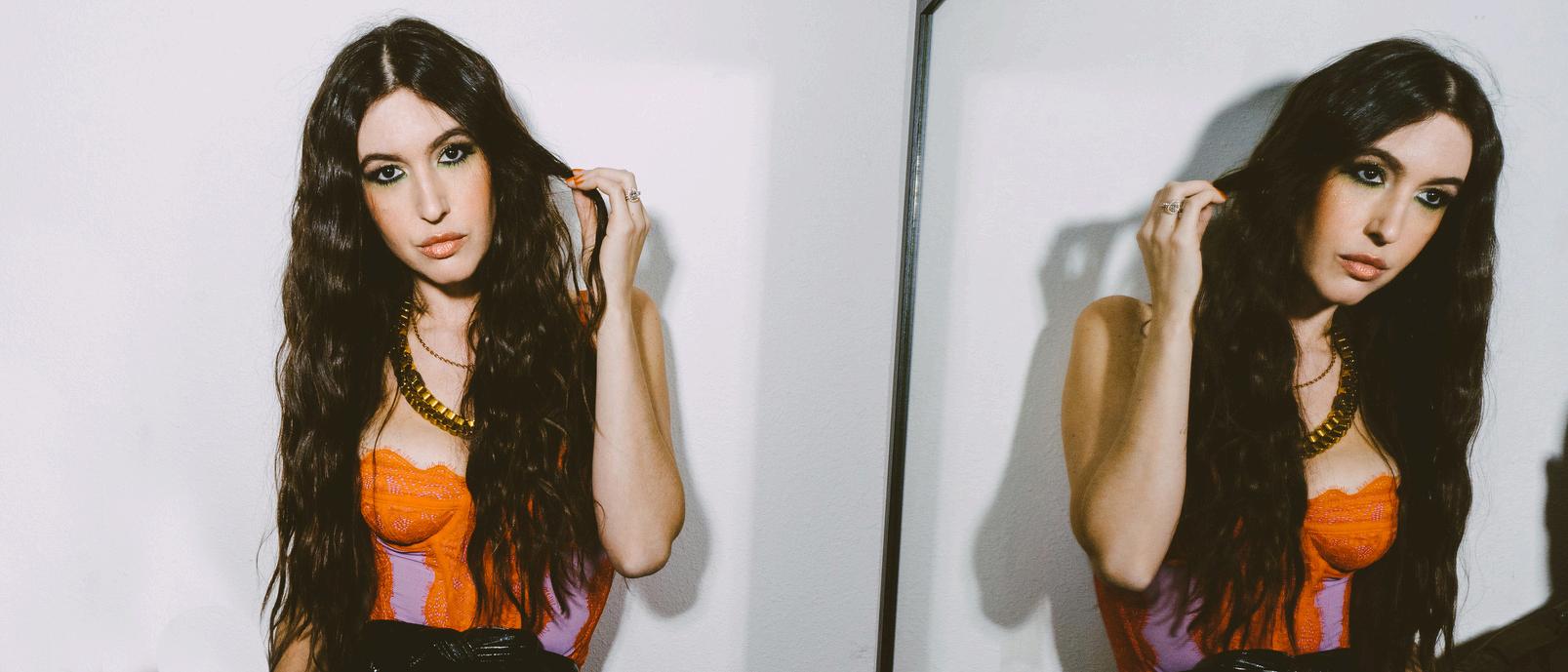


Q:YouaredrawntoFrance.In fact,yousingsomeofyour songsinFrenchandhavelived there.Whatdoyouthinkmakes Francesuchamagicalplacefor you?
Growingup,mymomtaughtFrench lessonsafterschoolatmyelementary school,andthat’swhereIfirstfellin lovewiththelanguage.ThefirsttimeI traveledtoFrancewastoplayashowin ParisonmyfirstEuropeantour,andI barelymadeittothevenuetoplaythe showbecauseIwassoenamoredwith thecity.IthinkwhatI’mmostdrawnto abouttheFrenchcultureisits unashamedcelebrationofenjoyment, whetherit’safreshcroissantora beautifulpieceofarchitecture. Spendingayearlivingthereand learningtospeakthelanguagehelped mereallyconnectwiththatsenseof

delight in beauty, and gave me permission to experience the little things in new ways.
Q:You'vetouredalloverthe world.Doyouhaveafew favorites?
It’ssohardtopick,becauseeventhe placesyouthinkaregoingtobe mundaneendupbeingmagicalin theirownways,butIabsolutelylove touringinEurope.Outsideofobvious highlightslikeParisandLondon,we playedareallycoolvenueinVienna nottoolongagothat’sliterallydirectly underneathametrotrain,andthe entireplacekindofperiodicallyshakes whenthetrainsgoby.Ialsoloved playinginAustraliasomuchandcan’t waittogetbackthere-thepeople,the food,andthebeacheswerealljust otherworldly.

I have about a million, but one of the things I’m working on is writing a book about working through perfectionism as an artist. I’ve given a few talks about it that have seemed to really resonate with audiences, and as someone who has spent their entire life trying to escape the clutches of perfectionism I think I can certainly speak from experience
As someone who’s taken on so many different creative endeavors in my career, I’m really passionate about the idea of helping other people get out of their own way creatively. Distilling all of what I’m learning into some kind of book feels like an exciting challenge As someone who’s taken on so many different creative endeavors in my career, I’m really passionate about the idea of helping other people get out of their own way creatively. Distilling all of what I’m learning into some kind of book feels like an exciting challenge.




Lacrosse Player, Entrepreneur, Mentor, Philanthropist, Mental Health Advocate, Speaker, and Founder of Lacrosse the Nations.
Editor’s Note: What a cool opportunity to feature Brett and his wife Kate in this issue Two distinct stories, two incredible journeys, captured side by side.
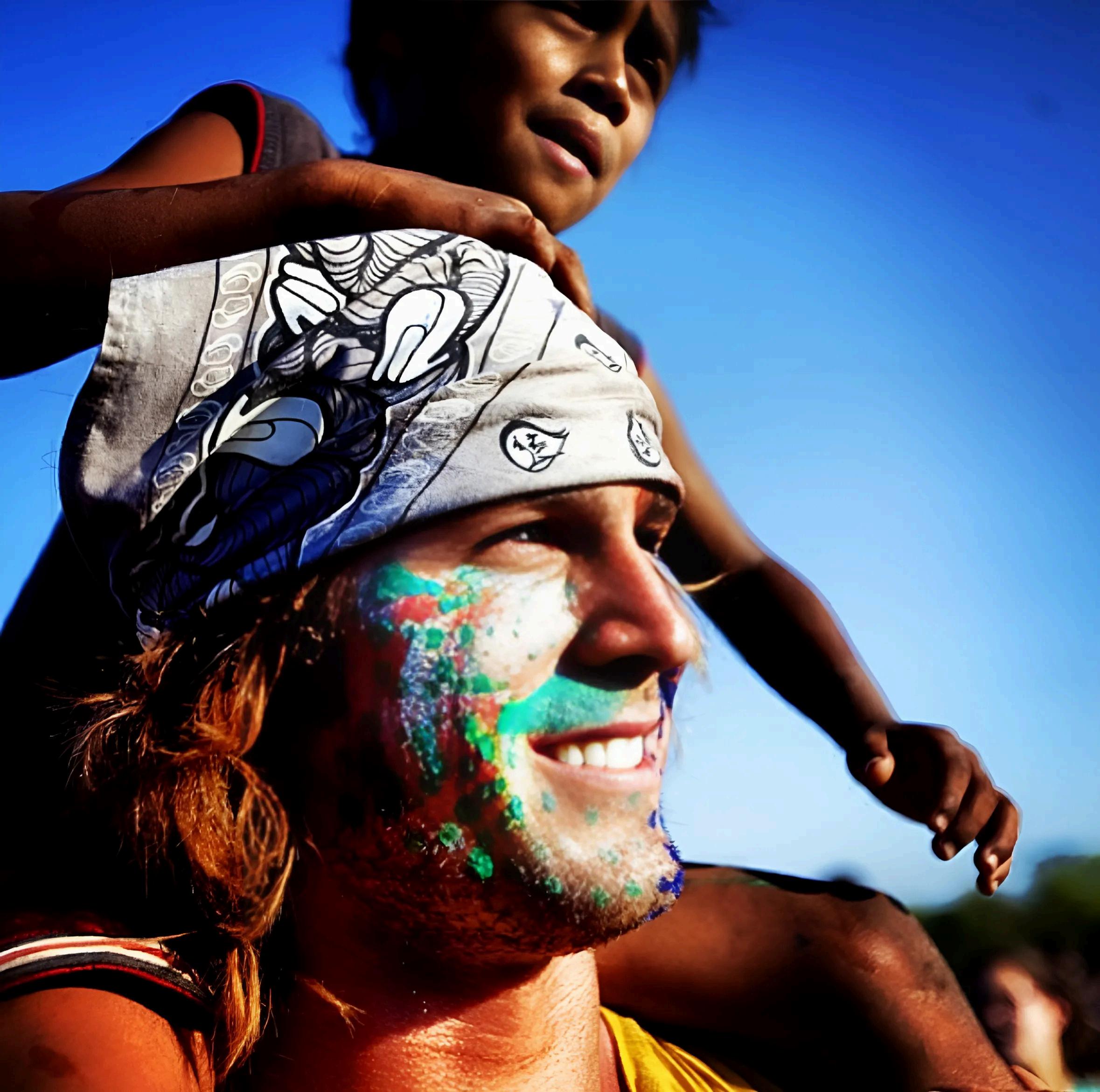
Q:What'sthemostaudacious challengeyou'veevertakenon?
ThemostaudaciouschallengeI’veever takenonislivingwiththelightson I wanttoexperiencelifefully toshow up,toserve,totakerisks,andtohelp thosearoundme.Butindoingthat,you inevitablyopenyourselfuptofailure, disappointment,andthe unpredictabilityoflife.It’sapathfilled withmakesandmisses,butit’salso whatkeepsmemoving,keepsme energized,andallowsmetoliveoutmy valueseveryday AnthonyBourdain oncesaid,"ThemoreplacesIseeand experience,thebiggerIrealizethe worldtobe."Thatresonatesdeeply withme ThemoreIstepintothe unknown whetherthroughtravel, storytelling,orbuildingsomething fromnothing themoreIrealizehow muchthereistolearn,togive,andto explore That’sthechallengeItakeon daily:stayingopen,stayinginmotion, andembracingthefactthatIam usuallywrongabouttheworld.
Q: You grew up in Ohio playing both football and lacrosse. How did you decide to stick with lacrosse?
IgrewupinAmishcountry Millersburg,Ohio beforemovingto Columbusatayoungage.Iwentto schoolinUpperArlington,rightinthe shadowsofTheHorseshoeatOhio State.Likemostkidsinthatarea, playingfootballtherewasthedream I workedhardatbothfootballand lacrosse,andforalongtime,Itruly lovedthemequally.ButasIgotolder,I startedlookingbeyondOhio.IrealizedI wantedsportstotakemesomewhere new,toexperiencedifferentcitiesand differentcultures.Thatledmetovisits atUNCandUVA,twoofthecoolest collegetownsIhadeverseenatthe time (Granted,Ihadn'tyetbeento Austin,stoodinsidetheColiseum,or felttheenergyofanightgameatLSU placesthatlaterblewmeaway.) ThenightIfirstsawtheLawnatUVAlit up,mettheteam,andtalkedwith CoachDomStarsia,Ijustfelt somethingclick.Charlottesvillehadthis perfectbalanceofeliteacademicsand high-levelsports,andIknewitwas whereIwantedtospendthenext chapterofmylife
Lookingback,Idon’tthinkIcouldhave playedfootballanywhereotherthan OhioState Tothisday,they’restillmy

favorite team outside of UVA lacrosse. But lacrosse allowed me to explore, push myself, and see the world in a way I might not have otherwise That made the decision easy.
Q:Youwereatwo-timeAllAmericanandcaptainofthe UniversityofVirginiateamthat wonaNationalChampionship. Whatmadethatteamthatyou ledspecial?
WhatmadeallourUVAteamsspecial wasthelockerroom Ilovethatplace andthe“ghosts”ofthelegendsthat havebeenatKlocknerstadiumwill alwayshumbleyouandhelpyoustrive formore.TheyearwewontheNational ChampionshipIwouldsaycamedown toagroupofpeoplewhoallindividually wantedtobegreat,butitwas temperedwitheveryonerealizingthat theonlywaytobethebestistohavea ringattheendoftheseason Wehada
ton of talent, but the spotlight changed each week, and whoever had the hot hand got the team’s support. There were about 10 leaders on that team, not just one or two. Another thing I hold dear about that team is how much fun we had. Our defense, in particular, was a fun group that was close both on and off the field and remains that way today. When we took the field, it was always to fight for each other, and that's not always the case with a team with that much individual talent
Q:Wasitano-brainertoturn pro,ordidyouconsiderother options?
Itwasnotano-brainer Itookayearoff aftercollegetogetsurgeryandfinally trytogetbacktoplayinghealthy, whichIhadnotdonesincemyjunior year Thenatureofprofessionallacrosse wasn'taquestionofdoingthisorthatitwasdoyouwanttodothis(play professionally),andstillholdajoband


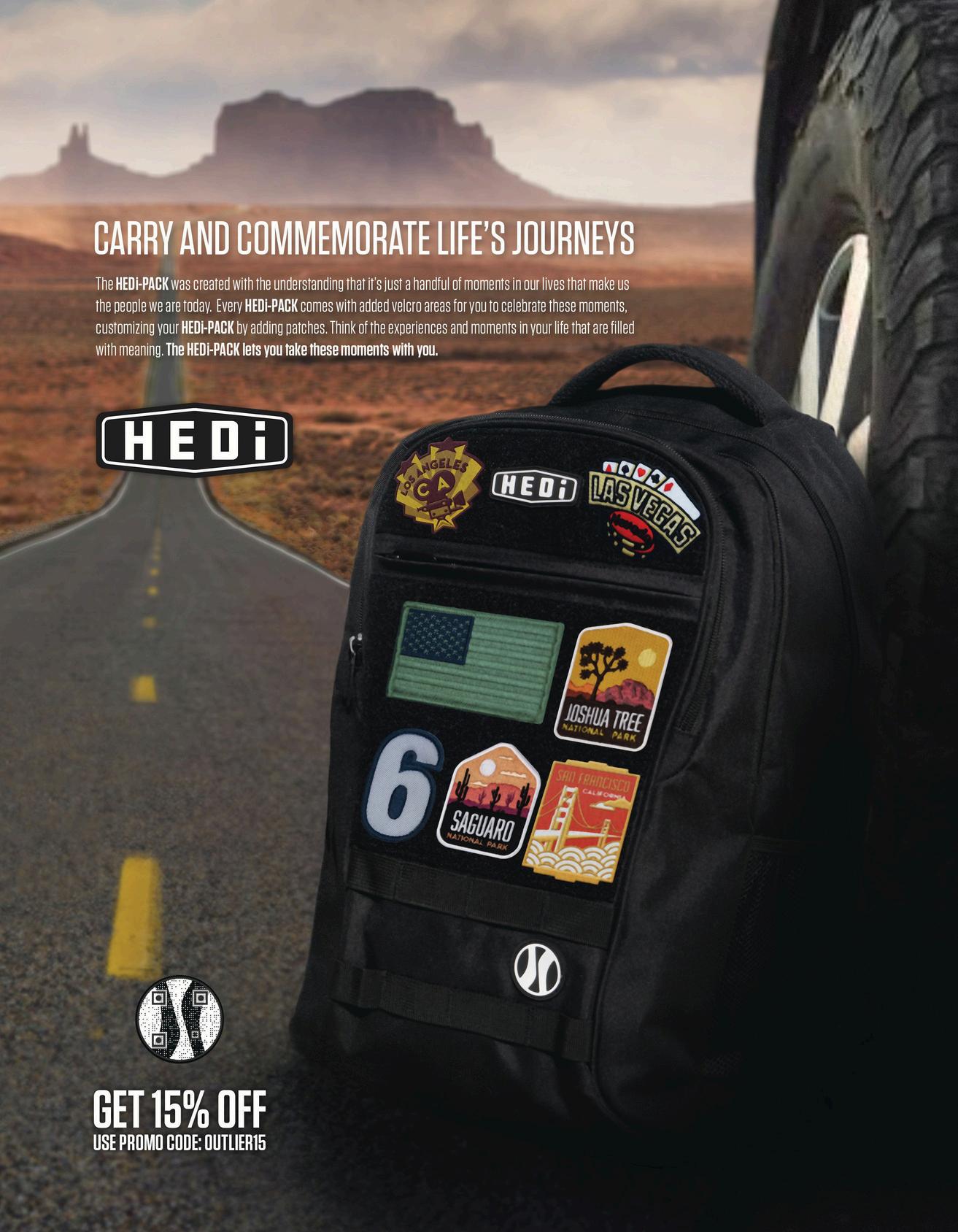
keep playing. That was a yes for me, considering I have always wanted to play against the best, and love team dynamics. Continuing to meet new people, playing against the best in the game, and helping to push the sport forward was a really incredible opportunity, but certainly not a nobrainer. I knew it would require a lot of travel, and the pay was… let’s just say… not what anyone might be thinking. You did it because you loved competing, being part of a team, and trying to create a platform that could help the sport reach new heights in later years We are seeing that with the Premier Lacrosse League and the growth of the sport at the professional level.
Q:Youhadalegendarycareer foreightyears.Youwereanallstar,atwo-timeteamMVPand captainforteamsinLos Angeles,NewJersey,Denver andOhio.Doyoumissyourdays ofcompetingonthefield?
AbsolutelyImissit.Imisstheteam aspect,andovertime,youshouldenjoy whatevercraftyoudiginto Ihave playedlacrosseinanorganizedfashion since7thgradeandusedtothrow aroundbeforethat…after20+yearsof doingasingularthing,youendup lovingitsomuchbecauseyouaregood atit,andyoucansinkintoflowpretty readily.Whileitischallengingto competeagainstthebest,youdon’t reallyworryaboutyourability.Ithink
finding that again is difficult for athletes, entertainers, and people who specialize at young ages I have had to find ways to transfer a lot of that drive into other work, and I am lucky to still have specific components of that discipline in my everyday life I love the teams I work with, and I do check in often to make sure I am working in alignment with my values. When I haven’t had those things connected, and worked with and for people who maybe didn't share that drive, it can make work extremely difficult to pour into day after day.



Q:YoufoundedLacrossethe Nation17yearsagoandhave helpedchildreninNicaragua, PanamaandColombia.Tellus aboutthemissionbehind LacrossetheNations.
ThemissionofLacrossetheNations (LtN)istoimprovethelivesofchildren aroundtheworldbyusinglacrosseto improveeducationandhealthwhile providingasafeandmeaningful ecosystemtolearnanddevelop.It’s reallyabouttransferringwhatlacrosse andsportsdidformeintodifferent partsoftheworld,specificallyto communitiesinneed.Ihavealways wantedtogivebacktothesportthat gavemesomuch.Usingwhateverlittle platformIhadtocreatesomethingfor someoneelseandprovide opportunitiesforotherathletes, ambassadors,coaches,andfamilies was andstillverymuchis an incrediblechancetodomoreandgive backthroughthissport It’sasmuch aboutourstatesideofferingtoget involvedasitisaboutourglobal missiontoserve.
Q:Whatlessonsfromyour careerasaprofessionalathlete havepositivelyinfluencedyour personalandprofessionallife?
I think the question has always been more along the lines of what lessons sport has given me, rather than professional sport in particular That experience certainly came with its share of lessons, but playing professionally is sort of the payoff for the 20,000 hours you put in to get to that opportunity A lot of the best lessons sports teach us begin in middle school, when organized sport starts to take real shape. I have always been a team sports guy as well - I love that team sports can allow you to be creative while keeping in mind there


are others around you This cultivates curiosity not only in how you can perform better, but also in how to unlock potential in the person to the right and left of you. One concept I have really used as a guiding principle in my life is the idea that you need to earn the right to be heard. Team sports teaches you all of that, and the best coaches make it fun to learn that principle along the way. They help you carry those lessons outside the lines of a field or film room, and over time, it helps shape how you see the world.
These lessons and principles are infused in how I have built the teams, businesses, and communities that surround me. They've also guided me out of a lot of places I did not need to be, and continue to motivate me to invest in people, cultivate teams, and create an atmosphere that strives to evoke those invaluable team-centric feelings of trust, grit, and a hell of a lot of joy.



Q:Yourecentlygotyour master'sdegreeinpsychology fromPepperdineUniversity. Howdoyouplantousethatin thefuture?
Thegreatpartaboutthepursuitofa degreelikepsychologywasthatI beganimplementingiteveryday It impactshowIworkwithmyteamsat StudioNow,howIthinkaboutwhatwe aredoingforLacrossetheNationsand whatwecanprovidefortheathletes andcoachesweserve,andhowIlook atoradvisedifferentcompaniesinthe behavioralhealthspaceasanmember ofEmpactfulCapital.Mydad,myuncle, andmystepmotherallholdPhDsin psychology Ihavebeenaroundthis myentirelife,andhavealwayswanted topursuethespace.EveryyearIget older,Iseemoreclearlyhowimportant andvitaltheunderstandingand empathyinvolvedinthisfieldisto createbetterplacesandspacesforthe smallcorneroftheworldIgetto occupy.


StudioNowisaglobalproduction companythatworkswithsomeofthe biggestbrandsandagenciesinthe world butatthecore,we’rejusta groupofridiculouslyhard-working, wildlytalentedhumanstryingtomake greatthingshappen Myteam? They’respecial.Notjustbecause


they’re good at what they do (which they really are), but because they actually care. They take pride in being great partners, not just great creatives. That’s something I care about more than just about anything how we show up matters And thankfully, from our CEO, David Mason, to everyone I am lucky enough to consider part of my team, that mindset has stuck and will continue to make us special and unique.
We’ve pulled off projects in over 130 countries, which still blows my mind. And honestly? I think we’re just getting warmed up. Like any great team I’ve been part of whether as a captain, coach, or role player trust

and communication are everything. We “review the tape,” tell each other the truth, and fix things quickly. No egos, nononsense, just deliver and create an environment that all of our partners love.
Creative production is a beast. It takes so many people just to get the raw material needed to tell a story, let alone deliver a finished project My job? Keep the train on the tracks, clear the path, and make sure we get it all done with a mix of guidance, service, and a little bit of fun. If I’m doing it right, the team feels supported, the clients feel taken care of, and we can make some pretty incredible things together.

Do you have any audacious goals that you're looking to achieve in the near future or long-
I think the most audacious thing I can do is continue to grow and not get overly comfortable. The world has a lot to contend with these days, and I hope that in this next phase, I can continue to find new ways to serve others - not speak for them, but elevate them
I hope to create more spaces for collaboration and shift the word ‘community’ back from a feature in an app to a place where we belong and connect. I say that not because it is novel, but because it is increasingly becoming a hard thing to do I hope to continue fostering community in my work and the things I do every day I tell friends and teams I work with that who you are is much more than the quote or podcast snippet you share… it's seen in the overall body of work. I hope to continue chasing that and get better at living in that capacity, but never, ever be too busy to support those around me
I (humbly) think the self-help world is wrong in how much you should say no, and how many people “waste” your time. The increasing focus on you and your goals is wellintentioned, but is that the point? To view success through such an individual lens? Thank the heavens for team sports, as I feel like they helped me see a different world where completion and success are only really achieved as a team and in a community. However, I don’t know the answer… as I mentioned, I am looking at the tape daily. I sure hope I can get a little better every year, and I really hope my impact on the people I meet, the ear I lend, and the words I speak can "make the room better" That, to me, is audacious as hell





New York Times Bestselling
Author, CIA Senior Operations/Paramilitary Officer (Ret.) Pararescueman
Q:What'sthemostaudacious challengeyou'veevertakenon?
Wow,Ihaveafewtochoosefrom. Becauseoftheageandcircumstances, ithastobemyexodusfrom communistCuba.IwastenandIwas sentsolotoanorphanageinPueblo, CO.ItwasaveryroughplacewhereI hadtogrowupquickand“cowboyup.” Ilearnedalotfromthis:howtomake andkeepfriends,howtostandupand fight,whennecessary(hitfirst,hitbest), andlearnedsurvivalEnglishineight months.Truthbetold,therealbruntof thisoverwhelmingburdenfelltomy FatherandMother,whosacrificedfor theironlychildtoenjoythefreedom thatmanydonotappreciate.
Q: Most people’s knowledge of the CIA and Black Ops is limited, or skewed by Hollywood and characters like Jason Bourne or James Bond. How different is the public’s perception vs reality?
180-degrees! Portrayal of the CIA in ALL media is negative, corrupt, unpatriotic and nothing could be further from the truth My Agency colleagues are

dedicated warriors who put their lives on the line and sacrifice their families in the war against our enemies. Proof: there are 141 Stars on our Wall of Honor; this, from an agency which is much smaller than the FBI, USSS, et al Almost a third of those Stars are post 9-11-2001. My colleagues are honorable, patriotic and fearless men and women who put country first. Trust me, there are plenty of Ric Prados therein
“UNLIKE THE MOVIES, INTELLIGENCE IS MORE LIKE A PUZZLE WHERE YOU PUT TOGETHER THE AVAILABLE PIECES AND THEN TRY TO ASCERTAIN WHAT THE PICTURE ACTUALLY IS.”
-RICPRADO


Q:YougrewupinCuba.Atthe ageof10youwereputona planetoliveinAmerica,and initiallysenttoanorphanage. Whatdoyouremembermost vividlyfromthatexperience?
Well,firstwastheCastrorevolution literallyatmyfrontdoor,theimmediate confiscationofproperty,startingwith myfather’smodestcoffeeroasting company,andthemilitarizationand indoctrinationofchildrenlikeme.


WhenIwitnessedmyfirstfirefightat theageofeight,Ilearnedabout auditoryexclusion Duringmyflightto theUSAin1962,Iexperiencedcomplete repressionofmymemories.After sayinggoodbyetomysobbingmom andmypopsbitinghislip,Idonot rememberanythingelseuntilIarrived inMiami.Notboardingtheplane, whereIsat,whenwetookoffand landed.It’scalledSHOCK.Andyes,Iwas 3-weeksshortofmy11thbirthday.


Q:YoueventuallyjoinedtheAir ForcesSpecialOperationsunit asaPJ.Whatdidyouloveabout thatexperienceandwhatmade youleavetoeventuallyjointhe CIA?
Well,Godhasaplanforallofus,but he/shealsopreparesusforourpath.As akidIreadeveryJamesBondnovel becauseIcouldnotaffordtoseethe movies,soIhitthelibraryincessantly.I alwayswantedtobepartofthespecial sideofthemilitaryandtotravelthe worldprotectingmyadoptiveUSA. BeforePararescue(PJs),IthoughtIwas atoughkid:IstartedkaratewhenIwas 15,liftedweightssincethenandat5’7”I weighed170poundsofmuscle.Iwas alwaysgettinginfights(good scholasticgrades,badconduct)

However,IwasquicklyhumbledwhenI wentthroughthePJselectionand pipeline.Iliterallypukedduringthefirst threedaysofselection Still,Imadeit andtothisdayIKNOWIwouldnot havegainedaccesstotheCIAifnotfor myPJtrainingandrelatedfortitude. Unfortunately,bythetimeIreceived mycovetedMaroonBeret,thewarin Vietnamwaswindingdownquickly.I wastrainingdailyandhavingablast, butIhadnopurposeforthattraining.I wantedtomakeadifference.And, mostimportantly,Iwantedtorepayour wonderfulcountryforthedebtofhonor Iinheritedthankstomyparents’ sacrifice.

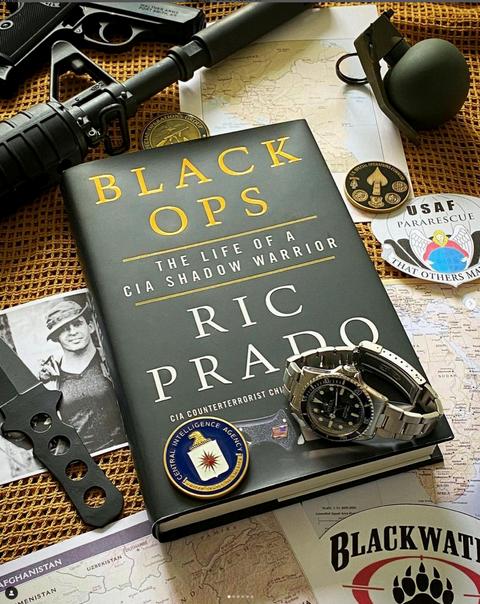
Q:Youwroteanunbelievable book,whichbecameaNewYork Timesbestseller,calledBlack Ops:TheLifeofaCIAShadow Warrior.Assomeonewhospent theirlifetryingtogoundetected itmusthavebeenatough decisiontowritethisbook. Whatwasthemotivation?
INEVERimaginedthemoniker “bestsellingauthor”nexttomyname. Butafter24-plusyearsoffighting alongsidemycolleaguestokeepour countryfree,Irealizedthatsomeone hadtowriteaboutwhattheCIA REALLYdoesandthetrueethosofmy colleagues Mostimportantly,Iwanted fortheoffspringofourCIAoperatorsto haverealandpositivestoriesabout whattheirmomsanddads“didduring thewar”(GWOT).BlackOpsismy platformfromwhichtoeducatethe non-cognoscentiaboutthedifference mycolleaguesandImade.Ourwork allowedourcountrymentoenjoythe freedomsweoftentakeforgranted.To thisday,Icontinuetopromotethe storyviaBlackOps,inordertokeep thatmessagegoing.
Q:Youspentpartofyour24yearcareerintheCIAfighting communismintheColdWar. Whatwasthatperiodoftime like?
Well, my first CIA mission was fighting communism via the “Contra Program” that President Reagan started to eradicate communism in our backyard; starting with, the Sandinista regime in Nicaragua. Imagine this: I am now a 30-year-old CIA paramilitary officer, helping the Contras fight the very same monster who destroyed my family and my country of birth. For three plus years, I slept in a jungle hammock in one of the ten camps the Contras had in the nebulous Nicaragua/Honduras border. For the first 14 months of that program, I was the ONLY CIA presence in the camps. It was the most rewarding time of my




career, and not once did I ever wake up and said: “what the hell am I doing here?” It was visceral satisfaction especially, during the two firefights I experienced, and one assassination attempt I survived (by luck). Additionally, I enjoyed fighting communist-backed insurgencies in Peru, Philippines and working with our Korean (ROK) counterparts. In the latter, I was Chief of Liaison with ROK intelligence services and police In 1998 I was awarded the East Asia Deputy Division chief running CIA's worldwide Korea programs, and CIA rep to the NSC’s Hard Target Board
Q:Thelastpartofyourcareerin theCIAwasspentfighting terrorism.Youspearheadedthe chaseforanamefewknewat thetime,OsamaBinLaden.How closedidyouandyourteam cometoeliminatingor capturinghim?
Counterterrorismwasalwaysmy passion,andIbecamepartofour CombatingTerrorismCenterin1988 (Centerwascreatedin1986bymy mentor,thelegendaryDewey Clarridge). AnalystMikeScheuerandI started theBinLadentaskforce,called AlecStation,inJanuary1996 Iwas madetheDeputyChiefofAlecStation andwasthesenioropsofficer.Thistenpersonunitistheverysameentitythat finallygeolocatedBinLadinand facilitatedforourSEALsto“shoothim intheface!”Withinthefirstsix-months wehadhimunderintensesurveillance whilehewasinKhartoum,Sudan.We proposeddozensofopsplansonhow todisrupt/terminateBinLadinbut unfortunately,thethenadministration wouldnotallowustoexecutethe missionstorenditionorkillhim. Imagineifwecouldhaveneutralized BinLadinin1997 Itwouldbelike shootingHitlerintheheadin1938. Becauseofthelackofconvictionbyour leaders,wesufferedthetwoembassy bombingsinAfrica,theassaultofthe shipCole,andeven09-11 ALL preventable.


Fast forward to May of 2001 when I became CTC’s Chief of Operations We were bombarded with intelligence chatter that indicated a major attack was imminent, in US soil. Unlike the movies, intelligence is more like a puzzle where you put together the available pieces and then try to
ascertain what the picture actually is Unfortunately, at that time, we had no capabilities in place to disrupt and prevent Al Qaeda from executing their evil mission
In early 2002, I resigned from my coveted C/OPS position in order to design and create a proactive, intelgathering program which consisted of all-source intel, intense surveillance of targets, and the development of operational capabilities to disrupt the plans and intentions of several terrorist organizations I personally briefed our then VP Cheney and Condi Rice, and they gave us a green light for us to implement this “stalker” capability Within six months, we had geolocated several senior terrorists and had plans in place to execute the disruption plans. I spent the last two years of my career back in the street helping “make book” on these animals. Unfortunately, all of our successes were censored and redacted from my book, Black Ops. Shortly after my retirement, the Agency scrapped the programs because of “political sensitivities.”


Q:Whatareafewthingsyou’re mostproudof,Ric?
Thatiseasy!Beingacontributing Americanpayinghisdebtofhonorto theUSofA AChristianmanwitha wonderfulfamily;allourkidshave advanceddegreesandgreatfutures(I wasthefirstPradotograduatefrom college,GeorgeMason).Ialwaysgive highpraiseandthankstomybeloved Pararescue,withoutit,Iwouldhave nevergottenashotatCIA.Iamproud ofmyworkethic,faithandmissionfocus,thisledtomeadvancefroma GS-7(E-7)toanSIS-2(2StaratCIA) I amalsoproudofbeingapartofthe greatcompany,BlackWater,whereI wasaVPfor“SpecialUSGovernment Programs.”Inotherwordssamedog, differentcollar Lastbutnotleast,my decadeslongworkingwithourSpecial OperationsForces.Itwasinvigorating toseehowbraveanddedicatedour fightingforcesare.
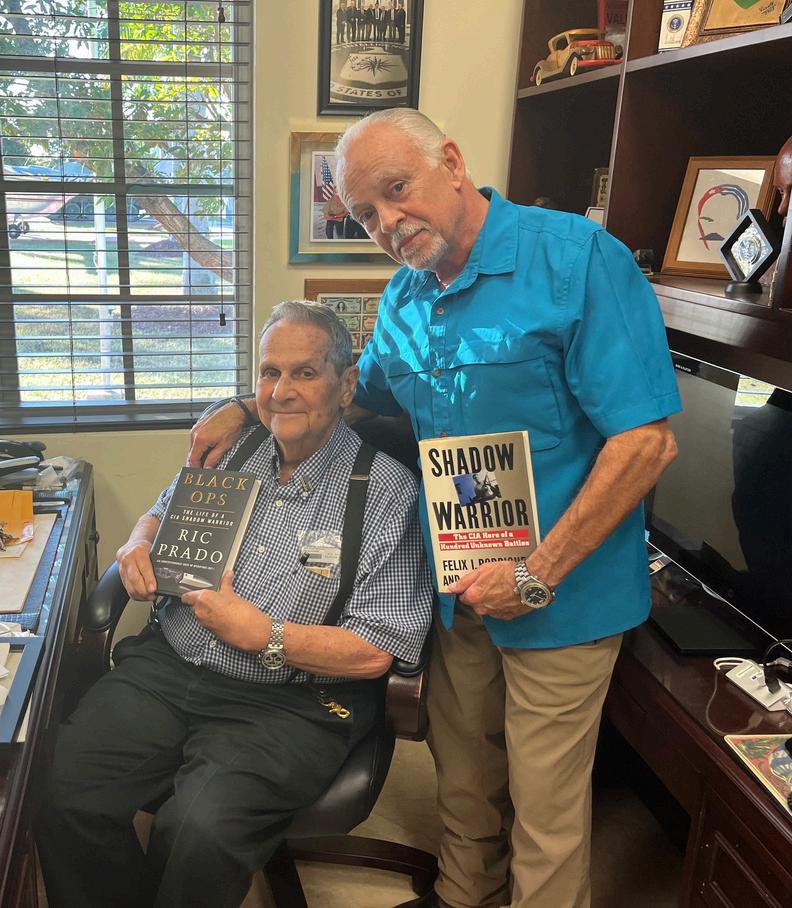
Q:Whataresomethingsyou learnedinSpecialOperationsor intheCIAthatareimportantfor civilianstoknowaswell?
First,beresponsibleforyourownsafety andthatofyourfamily AtCIA,90%of ouroperationsaredonesolo,soyou masterthisquicklyorfail.Ibelievethat theonethingleastlikelytohappenis whatyouarepreparedfor Iamalways attheready Butrealizethat situational-awarenessbeatsfast-draw everytime.Thatishowwesurvivedan assassinationattemptinthe Philippines Iwasblessedwith wonderfulbosseswhotaughtmehow tolead,notmanage.Myteammates oftensaid:“…OurChief,alwaysleads. Heisfirstthroughthedoor,firstonthe matorgym,firstonepickingupbrass Alwaysshowcasingour(nothis)team successestohissuperiorsbutalways thefirstonetotakethehitforus…”. That,ismyproudestaward:therespect oftheteammatesIlove Upon retirementIreceivedthehighest commendationgivenaretiringsenior officer(DistinguishedCareer IntelligenceMedal),andtheGeorge BushAwardforExcellencein Counterterrorism Still,theaccolades frommy“guysandgirls”ismymost cherishedmedal.

Oh, I have several and all audacious (like a Platypus ;-). First, my mantra is “don’t let the old man in,” taken from the song composed by Toby Keith and dedicated to Clint Eastwood. I still weigh the same I did in high school, only distributed slightly differently. I exercise five days a week.
More seriously, however, is my hope that I can make Black Ops a documentary series, or based-on series; anything that will keep spreading my message about the CIA, my colleagues and the need to fight communism. So, if any members of your august audience has any ideas, traction and/or connections, I would love to hear them.




From Addict to Marathon World Champion, Entrepreneur, Speaker, Endurance Athlete, Investor, Dad x4

the most audacious challenge you’ve ever taken on, Ken?


outside of sobriety, the most audacious challenge that I have taken on or attempted was the Gobi March in Mongolia in 2023
Ken: Aside from sobriety, a lot of the events and races that I've done over the past several years
I would always train like I couldn't win, and race like I couldn't lose So in the build up to an event, I would typically be panic training and convinced I'm going to get embarrassed and humiliated. And then in the day before and the day of and in the morning of the event, I would literally…I don't even know how I did it. Because when I'm thinking about the preparation, I'm so scared, so anxious, so nervous. But something happens as I get closer to the event where I'm like, I'm going to fucking kill everybody You can't beat me I've convinced myself that I can't lose, and I just have attacked aggressively
But when it came to my addiction, I genuinely thought that my addiction would end with my death or suicide because I didn't think that it was possible to get sober. However, in terms of physical activities or physical challenges
That was, at the time, audacious. Right? I had never run with a backpack. I had never camped in my life. I don't like camping. I don't want to sleep outside. I want to sleep at the Four Seasons. I don't even try to pretend I grew up in those rough conditions and rough environment.
I don't care about being tough and staying in like a dumpy hotel Like, I don't want it I'm a wuss I don't want to fly in coach This is my own cross to bear But it is what it is It's my own weakness, but I accept it and embrace it
So attempting to go to Mongolia and do a five day stage race across the Gobi Desert carrying all your supplies was audacious. It was a self supported race, meaning you carried everything except water. They provided water in a tent. It was audacious because I had no idea what to expect.
But again, it was that mindset of like, oh,
my God, that's so scary. But by the time I got to Mongolia and got on the start line, I was ready to die to win.
The crazy thing about that, and I was going to ask this, but now I'll ask it now, is so you not only take on your first Ultra, but you take on a crazy one and you don't finish, you win.
So by the time you got to the start line, did you know you were going to win or did you know you had a shot?
Ken: Like I said, in my mind, I was like, “I'm definitely winning.” But realistically, after the first day, I was in fourth place. And at that point I was like, oh, I'd be so happy to get in the top three And that's typically the way the mindset works for me when I'm running a race If I'm running in second or third, I'm like, okay, top three is honorable
And then as you get closer to the finish line, you're like, I can win Like, I can win this if I just empty the tank. It becomes like a negotiation, just like everything. When it comes to training, you're constantly negotiating with yourself internally. Right, when you're feeling tired and shitty in the middle of a workout, there's a part of you that's saying like, oh, today's not the day, man, we'll do that tomorrow.
We'll save it for the next workout And you're constantly battling this self preservation voice and this of greatness voice There's a part of you that wants to be great, and there's a part of your

brain that wants to protect you from yourself And, after the fourth day of that Gobi March, I was like, “holy shit, dude, I came in fourth place ”
I mean, I'm destroyed
I was talking to one of the guys in the camp the first night after the first stage, and he said,” Yo, those guys that are ahead of you, they know that you're a marathon runner. Like, they know of your accomplishments and they think that they're gonna slowly wear you down and destroy you eventually.”

And I said to him, “Dude, you have no idea. I'm gonna fucking destroy them. You don't kill me, I kill you.” And then the second day I went out and won by a fair amount, but not enough to make up for the time I lost on day one.
So I was still down by a few minutes starting at stage three, and then in stage three I came in second And then on stage four, the 50 mile stage, that was the stage that I blew it apart and took like an hour and a half lead Because the guy who was, honestly, he was probably better than me in the grand scheme of things He just had a single bad day on the 50 mile stage and he started to struggle. And then I was rendering first aid and trying to help him, because he was in a really bad spot. Eventually a support vehicle came along and started tending to him.
And once it did, I took off and ended up winning by 90 minutes. And then, for context, the guy beat me the next day in a 26 mile stage He beat me by like two minutes We, were basically together the whole day
And then on the last steep descent, he was a real hardcore mountaineer dude from Switzerland, very technical I have no technical skills. I didn't grow up running. I don't know anything about trail running or mountaineering. I just know suffering. So when you're on a steep descent, someone who's really technical, they just run away from you.
Same thing on a mountain bike if you're not a good descendant Like Lance Armstrong for instance, I've ridden my bike with him in Aspen

And it's like on the climbs we're good, we're good. I'm with him in terms of fitness. The minute we hit the downhill, I can't even see him.
It's instantaneous And same thing with a runner So the guy got away from me and beat me by like a minute and a half But I had a 90 minute lead So then going into the last stage, which was five or six miles, I had a 90 minute lead
And the same guy who told me that these guys are saying they're going to kill me, he said, “Oh, you know, the last stage is like ceremony. You're going to let someone else win this last stage.” I said, “I will let them? Let them? I would die before I let them beat me.” I'm like ready to die to win, even this stage.
So I said it would be disrespectful to let anyone win anything Anything you win in any race that you win in life, you have to genuinely win You don't get gifts like that

You've dealt with a lot of adversity in your life. You were a prison guard, you fought drug addiction. I think you pushed yourself to the brink in business and in athletics. What advice would you share around the topics of overcoming adversity and building resiliency?
Ken: You can make it as complicated or as simple as you like, but at the end of the day, you just have to show up for yourself every day. The things that I've done are less about winning a race per se, and more about winning the internal struggle of self-preservation versus overachieving
Winning the race is nice, but the journey is what you do it for, right? You can train for three months killing yourself for a marathon, or in the case of a fighter, for a fight And the minute the event is over, race or fight, you are the winner or you're not, whatever it is.
In the case of winning, the momentary happiness that you feel is so fleeting that if you're not enjoying that whole process, you're going to be sorely disappointed because it does not last long. It's like what I tell people about money. It's like if you think money is going to make you happy, and I get it if you don't have money
I've heard people say, “Ah, uh, fuck this guy, he's crazy I'll be perfectly happy with money ” Okay I was poor, then I was rich And when I got rich, I became a drug addict. I've been up and down with regard to finances my whole adult life.
And when I've had plenty of excess cash, I'm still the same person. I don't have to worry about paying the bills this month. So then I'll worry about my health, or I'll worry about my children, or I'll worry about something that's out of my control
People that worry, worry Today it's money, tomorrow it'll be something else, right? Yes, it's nice to have money I'm not trying to discount that, but I'm saying if you think that all your worth is wrapped up in the size of your bank account, you're crazy. And it's the same dynamic when it comes to winning.
If all you're doing is competing and training to be the winner… people who have the kind of work ethic that allows them to win, it doesn't matter what you win. If you win an Olympic gold, you want another one. It never ends and it's never enough It's just like money One win is never enough

The New York Times called you the best marathon runner in the world over the age of 50. You have world championships under your belt. What makes you want to make the sacrifices to compete at that level?
Ken: Well, first of all, I'm not the best marathon runner in the world over 50 I was the best on the day that the race was run. But I promise you that there are guys around the world over 50 that are running a lot faster than me. Not a little, a lot.
Even in the Chicago race when I won, the guys that came in second and third had both run much faster that year, in different events, than I'd ever run in my life But on that day I was the best So in that regard, I'm the winner But I just want to stress that while it's nice for them to say that, I'm not the best I'm the best that I can be, and that's good enough for me
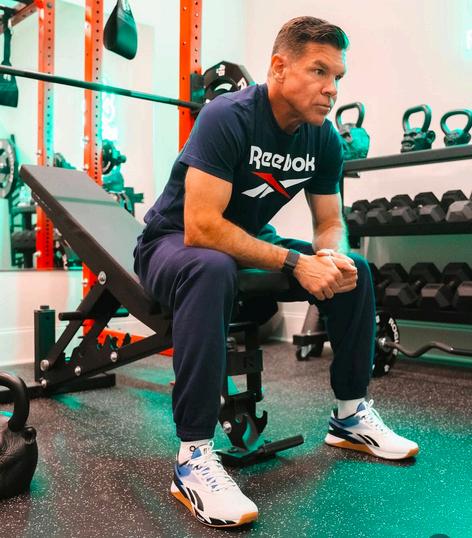
But I wouldn't even say it's the racing that is keeping me motivated It's health and it's more of the, like, I don't know that I'll that I'm even gonna do any more races, to be honest with you But it doesn't change the fact that my work ethic is exactly the same because my kids are watching me, and I'm trying to set an example that it's not just about winning It's just about showing up and taking care of your number one responsibility in life.
And that's your own mental and physical well being. And no one's going to do that for you. So in that regard, I don't need an event or a race or a title or a win to stay motivated to take care of what I'm responsible for That's my job as a dad and as a man
So one thing I'll never forget is I remember being with you in Maine for Hell on the Hill, which is the hilliest half marathon in the world. I think it was right

before you were going to run a big race, and you pushed so hard that you were in an ambulance afterwards.
And I know that you've got a P.R. or E.R. (Personal Record or Emergency Room) mentality, but what made you push that hard right before a big race when that big race probably had way more significance to you?
Ken: The race did have more significance. I was getting ready for the Berlin Marathon, and I completely fucked myself in Berlin by emptying the tank on a fucking backyard half marathon that didn't really matter

But you did it anyway. Why?
Ken: I just it's like, when a horse sees the barn, they just start running faster I don't know I wish to be honest with you Maybe it's my own insecurity, but I wish that I could have toned it down a little because as a result of emptying the tank there
I think that probably played a small part in the fact that when I went to Berlin in the best shape of my life, I went way too hard early in that race. It was hot and humid, and I completely blew myself up and finished in, like, 2:35 when I was trying to run, like, 2:27, which is a big difference.
I was so bitterly disappointed with that race in Berlin But just for context, after that 2:35 in Berlin, 14 days later, I ran 2:29 in Chicago And, I mean, I was taken from

the finish line by medics in Berlin. I was in bad shape because I had pushed way beyond what I should have or could have.
But that's my own insecurity and my own foolishness that caused that over exertion in Maine. When you just said that, Hell on the Hill in Maine, I was trying to even think of what the course looked like
I vaguely remember doing it, but I remember being in the ambulance, but I remember every step of the Berlin Marathon, which was the main race, to me But, yeah, that's a perfect example of, regardless of what anyone says about me or anyone else, you can't believe the hype.
You can't. Other people's opinions are just out there. They're opinions. Just because someone says, “You're the best marathoner in the world over 50.” Like, if I start thinking I'm the best or I'm better than anyone else, I'm only sabotaging myself I'm not the best
I'm far from the best There's a lot of things that I'm good at, and there's a lot of things that I'm bad at And it's a summation of all the good and bad And there's plenty of material on both sides of that equation, good and bad.
There's a lot of things that I need to improve on, and there are some things that I'm good at, and suffering is one of them. Unfortunately, it led to my demise in Berlin.
Let's talk about your career on Wall Street. You started with Canter Fitzgerald. You rose through the ranks very quickly. Tell us about your career and how you used that early experience to build what you've got now at Camrock, and even more recently with Rideout Sports and Entertainment.
Ken: Yeah, I got a job right out of college, in New York I was lucky enough to work with a guy called Mike Peltier who unfortunately died on 9/11. He was working as a commodities broker at a firm called Euro Brokers, and they needed a trading assistant.
They hired me, and I worked at Euro Brokers for a few months. I just had a knack for commodities sales and brokering and sales and trading Like you said, I quickly moved through the ranks I worked at Canter Fitzgerald I ran all of Europe and Asia commodities trading for a couple of years
And then I was there in London, thank God, on 9/11 Our entire firm was based on the top four or five floors of the World Trade Center. So after that happened, obviously we lost thousands of employees and co-workers. They asked me to come back to New York from London and take over the credit derivatives business, which was one of the most lucrative businesses for the firm.
When I came back it was trying to figure out a new financial product line With my background and my degree in sociology was a bit of a challenge, much like trying to understand what was going on with electricity and natural gas trading
But, I did it and it was very successful I eventually transitioned from being a credit broker to a credit salesperson at a bank, and kind of moving up the prestige totem pole if you will. I would argue that brokers are kind of on the bottom of the totem pole in terms of prestige.
But all along the way many of these stops were excellent jobs, not necessarily the best careers, but you could make a lot I mean there were people making millions and millions of dollars every step of the way But I wanted to have more to add to my professional pedigree than to just be someone who made money


It was also important to me to have a level of prestige, whether right or wrong And I eventually went to Natixis, the French bank, as a salesperson selling structured credit products Unfortunately those were all the instruments that blew up during the great financial crisis in 2008
When that happened, I transitioned into fixed income sales at Credit Agricole. And I was there for four or five years selling corporate bonds. Eventually I made my way to LA, and I was doing business development for a private equity firm called the Palisades Group. And that was a huge success for me as an individual, because it allowed me to grow professionally in ways that I had never imagined

Because of the experience I gained there in raising capital for the fund I ran, I eventually went out on my own and started raising money for third parties I raised money for different private equity and venture capital funds, as well as private placements.
So raising money for all kinds of startups. And again, much like the commodities, I just had success early in that endeavor. One of the first mandates that I worked on was for a company called Life Biosciences in Boston, which was founded by David Sinclair, the genetics professor from Harvard Medical School And from there I was raising money
I started raising money for a lot of health and wellness brands In addition to raising capital I would typically invest in any of the mandates that I worked on And through doing that and the running and racing, I just became very entrenched in the health and wellness space.
Eventually I was building a bit of a following on social media through the running, and in the work I was doing advising some of these brands. And I started to do some small brand partnerships promoting brands on my social media
And eventually that began to expand slowly over the last couple of years and I ended up getting a deal with Reebok and Whoop Athletic Brewing, both brands that I was incredibly honored and proud to be affiliated with. And my friend John Bear at Jack Taylor was sending me a lot of brand partnerships
He was referring a lot of their PR clients to me to do promotional work via social media And eventually he was sending me so many and then I was referring those brands to other kinds of influencers, for lack of a better term. Between John and I, we had contacts basically everywhere from music, the arts, sports podcasts, that it almost made too much sense not to start a management agency and start helping people manage their social media brand partnerships.
Officially we launched last week, but we've been going for about a month or so with a handful of partners They're all listed on the website But it's been an incredible early success, knock on wood We've closed some significant brand partnerships, involving cash and equity and considerable upside Like anything else, it's incredibly nerve wracking to start anything. You know; starting your own magazine can be intimidating.
Are people gonna like it or they're gonna talk about me and say, like, this thing sucks. You wrestle with your insecurities and anxiety versus your irrational exuberance, and you land somewhere in the middle where you're, like, cautiously optimistic and then you attack with a realistic game plan
Yeah, I think it's going to be a massive success. You have an incredibly busy life. You've got three sons, a daughter, and a beautiful wife, Shelby. How do you balance family life with all the other things you're passionate about?
Ken: I would love to tell you that I'm winning in all areas of my life, but, I don't think that I have very good balance. I'm trying, but you know how it is. When you have all the things that you just listed, that comes with incredible, incredible responsibility and part of that is being responsible for them. And again, I don't profess to be doing this very well.
There's definitely a lack of balance at times Like, for instance, I never think, “Oh, it's the weekend, thank God, I'm going to check out” And listen, that's my problem That's something that I have to address, because I need to be able to check out sometimes But I would be lying if I said I did.

My wife was saying to me the other day that she thinks sometimes I’m too brutally honest. But I don't know what else to do other than to be sincere with this kind of shit. Because I don't want to give this impression that I'm like super dad behind the scenes, and I'm working my ass off during the week, and then I can shut it off
I'm in front of this computer in my office every single day, even if it's just a few hours in the morning drinking coffee, looking at the emails, checking Twitter, looking at the news and just trying to keep my finger on the pulse of everything that's going on.
And at times, it gets a bit overwhelming, and I need to work harder at balance I think that's what's important or relevant to your audience People that are interested in outliers know that no one has it all figured out I promise you that Every person you talk to, certainly people that have had big achievements in one area.
I have met people that I'm like, “This guy is like, a super person”, but, even Elon Musk, who's like a modern day Albert Einstein, obviously, this guy can't be father of the year if he's fucking working on ten different businesses 24/7
Know, and I think that's what people should take away from this, that no one's perfect And be careful what you wish for, because everyone has got their own cross to bear

Yep, 100%. You have very interesting people that you hang around with, and a lot of them make total sense to me. So it could be Jesse Itzler, it could be Devin Lavake, it could be Dustin Poirier, it could be Andrew Huberman. And then there's Jelly Roll, who's taken the music world by storm.
On
the
surface, you guys don't seem like you have a ton in common. How did that friendship
develop?
Ken: Yeah, first of all, we lived in the same community when I moved to Nashville. He's a huge fight fan and had watched some of the podcasts that I used to do, the Fight with Teddy Atlas. Someone in the club introduced us because they knew that Jelly Roll watched the show And, we just became friendly As much as he doesn't seem like it, he's an avid sports fan, he's a great golfer I'm a shit golfer and don't know anything about music

right? I grew up in the inner city I worked in a prison We, our personalities had a lot in common From a personality perspective He may not be the physical fitness enthusiast that I am, but we definitely share a lot of the same vices, or what I used to call vices.
And he's just a good dude. We just connected. I like him. I mean, I haven't seen him in a little bit because obviously he's like a megastar. When I met him, it was, you know, we could go to dinner and a couple of people might say hello.
Now he's got, like, four security guards everywhere he goes, and I haven't, unfortunately, been able to hang out with him The last time I saw him, we flew back on his plane from LA to Nashville in the middle of the night And, he's just been on a whirlwind tour
I'm so happy for the guy. Like, works his ass off. That guy works every single day. I don't know how he does it. Like, honestly, it's crazy. But, yeah, Jelly Roll’s. my dude., I love the guy. Those people you mentioned are high profile friends.
I have met people that I'm like, “This guy is like, a super person”, but, even Elon Musk, who's like a modern day Albert Einstein, obviously, this guy can't be father of the year if he's fucking working on ten different businesses 24/7.
Know, and I think that's what people should take away from this, that no one's perfect And be careful what you wish for, because everyone has got their own cross to bear
But I also have some friends like Rob Mohr and John Bier who might not be crazy big celebrities, but they have their own accomplishments and achievements. Rob Mohr is the producer and business manager, slash partner, of Andrew Huberman and John Bier built a hugely successful PR firm at Jack Taylor pr.
And you know, those are two of the people I spend the most time with, but to me are two of the most impressive people I know Okay, they're not artists or like superstar athletes, but what they've created out of thin air is just crazy, crazy impressive And yeah, you become a summation of the people you spend time with.
And I know it sounds corny and cliche to talk about that in that context, but it's the truth. You become the people you hang out with. If you're hanging out with people that are drinking and doing coke and partying all the time, like, what, you're gonna be the one guy in the crew that's working out and going to bed at 9 o'clock? When would you even see those guys? It's just common sense, you know But then people will always ask me, how did you become friends with these guys?
And how do I become friends with these people? And I always say, if you want to have friends like that, number one, you have to start with being a good friend.
And number two, you have to lean into the things that you're into Like, if you're into golf, you're going to hang out with other golf guys And if you're into painting, you'll find the other painters People want to hang out with people that are into the same shit that they're into
It's just like in a big gym, like in a bodybuilding gym, the guy who has the biggest muscles is like the coolest guy in the world while he's in the gym to his peers. So if you focus on the things that you're into and being really good at those things, whatever they may be, computer programming, playing the guitar, the other people that share that passion, they'll find you
But if you think that you're going to go to

a networking event and like to meet Rob Mohr or John Bier or Scott MacGregor, like, it ain't gonna happen. Anyone trying to network for networking’s sake is already losing, in my opinion. It's like transactional asset collecting.
I want to collect friends You're literally talking to people and they're like, how can this relationship benefit me? And you can see them looking over your shoulder for the next, more important person It's disgusting to me If someone says any the word networking to me, especially on LinkedIn, I'm like, fucking goodbye.
I don't want to network. I'm living my life, and if we meet during the course of living life, like, same way I met you, we met doing things that we both shared a passion for… If someone said, you got to meet my friend Scott, he's got a magazine, blah, blah, blah, I'm telling you, I would be like, brother, my friend roster is full
I'm actually making cuts I don't audition for a new spot It has to be so obvious that you meet someone and you're like, “This guy is cool I want to hang out with him.” And it ain't gonna happen because you send me an email and tell me you want to be my friend.
It's the wrong way to go about things. That's my view. I know other people have different views. I'm just telling you. Anyone reading, please don't send me a LinkedIn request and tell me why we need to connect, right?
That is the bane of my existence
Do you have any audacious goals that you're looking to achieve in the near or long term?
Ken: Yes I started this sports management and marketing agency, and I want it to be as big as CAA or WME I want to be one of the premier sports agencies in the world And that's incredibly audacious
Intimidating Like, I know I can suffer I know I can go do more endurance events. I've done that. And while, like I said, I'm far from being the overall winner of the New York or Boston Marathon, for instance, or far from winning UTMB or Leadville, or I'm far from winning the overall title there, I can become a real agency contending with the biggest agencies in the world And that’s completely out of my comfort zone
I haven't done anything to speak of in that arena So that, to me, is audacious and much more intimidating than a running event
"I would always train like I couldn’t win and race like I couldn’t lose."
-Ken Rideout











"I’m not trying to lose; I’m trying to survive. And the only way I can do that is by really challenging myself."
-Metta World Peace
In this candid interview, Metta Sandiford-Artest, better known as Metta World Peace, opens up about his transformative journey from the gritty streets of Queensbridge to becoming an NBA champion and a trailblazing entrepreneur.
Known for his bold decisions whether it’s changing his name to symbolize peace, auctioning his championship ring for mental health awareness, or pursuing groundbreaking ventures in sports tech Metta embodies audacity at every turn.
Dive into his reflections on resilience, cultural curiosity, and the lessons he’s learned from navigating life’s toughest challenges From coaching to aspirations of becoming a corporate CEO, Metta shares how his fearless mindset continues to drive his ambitious vision for the future.
- Scott MacGregor
Metta, you grew up in Queensbridge, public housing projects that were about as rough as it gets. And I think it left you, and I'm sure everybody else that grew up there, with a kind of survival mindset. And you lived that, but now you've completely changed your mindset. Tell us about how you used to think and how you flip the script now.
Metta: Well, I think in Queensbridge, you go through phases, right? When you're born, the first phase you go through, it might be you're a child, such as my son. And it doesn't matter how much money you have; you really only care about your parents.
You're waking up What are you doing that day, right? Then, depending on how you're raised and things you've gone through, who your parents are, who your siblings are, your friends, you start to learn Because as children, we could absorb a lot So, you could grow up with a mother and a father in the household.
But once you go outside and your friends are influencing you, and you love your friends, and they're influencing you to hang with them, do what they do, or they're influencing you in terms of how they feel. They might have a bad day, and you might take on that energy, that pressure
So you become like everything in your environment The happy times, the bad times So I think Queensbridge, you know, it was a place of community But as beautiful as it is, you know, you go outside, big grass, big lawn on River Park, it's still kind of an impoverished
area. Meaning not compared to Africa, not compared to the slums in Honduras, but in comparison to New York City, it's still people that've been there for years. So sometimes it's hard to get out of that mindset. So, you know, growing up, it was a mix of happy times, a lot of playful times, defensive times, being protective of yourself, your friends
You have to be aware of your surroundings, be aware of getting in trouble, be aware of getting harmed, you know, being aware that whatever move you make today could affect you for the next couple years. And then also taking leadership, because there was a lot of leadership in our community.
So it was definitely a kind of a mind game going on in our community.


But that mindset has changed completely, hasn't it?
Metta: Well, the mind It wasn't that the mindset changed I mean, one, the environment changed too. I think I got a little older. The mind. Sometimes you can't communicate the mindset. So for example, let's just say somebody is getting in an argument with someone and rather than use their words, they act violently.
Violent actions, right? That's because the communication is off But when you learn your history and then there's different things like that, that could put things in perspective so you can make a decision You can make a more sound decision faster, right?
So it's not necessarily the mindset. It's that I can make a decision in real time. Okay, this is what I think about this situation right now. It's not going to take me two weeks. It's not going to take me a month or even two years, walking around upset because of one thing that happened. That happens a lot in our community.
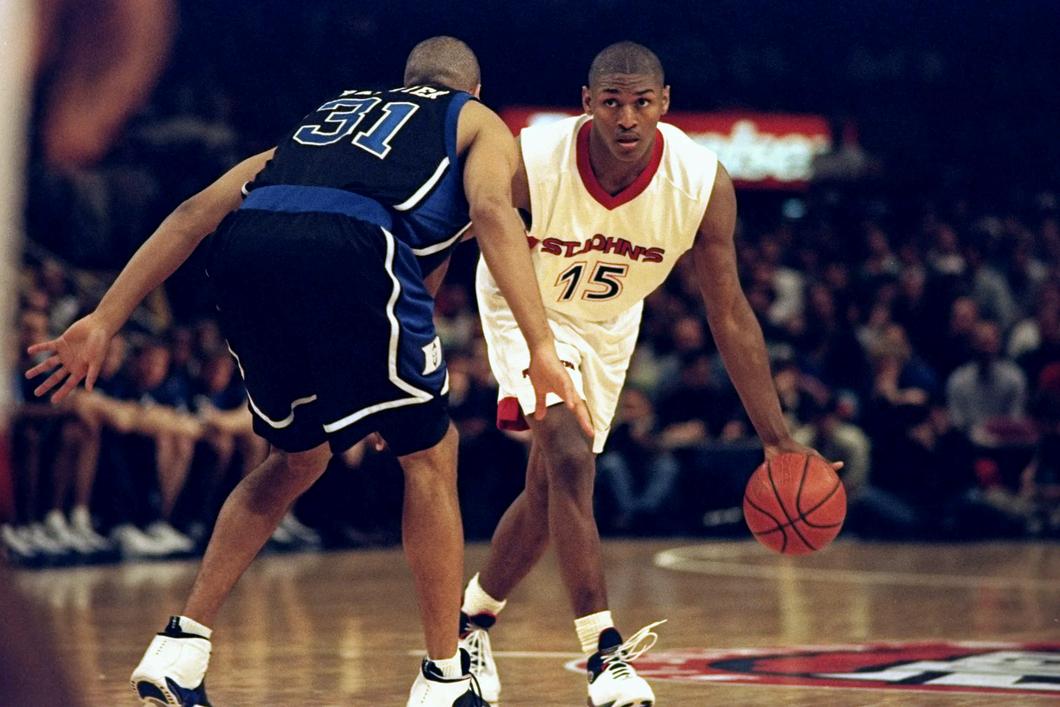
You've become very intentional about learning about different cultures. Why has that become important to you?
Metta: Yeah, I think so. I think it's important because for me, I love to be around different types of people. I love Black people, but I also love to learn about all people. You know, some people have mistaken that for not liking your own race.
Not even only our race, but other races You hear the term self hate But I think
it's different than that I think it's just like if you grow up around one person I grew up in Queensbridge only around Blacks and Latinos If you grew up in China, you were around mainly Chinese people If you grew up in Israel, you were around a lot of Jewish people If you grew up in Africa, you know a lot of African people And when you meet someone of another ethnicity or race, sometimes that's attractive. You're curious to learn more about them.
So, for me, I'm very curious about other ethnicities and other cultures and other learnings. I don't know all I want to know. And so I'm always curious about someone else's culture It doesn't take away anything I feel for my own culture and ethnicity
That’s very interesting. For as long as I can remember, we've lived in a world where people sometimes think of athletes as “dumb jocks.” You went to St. John's and you majored in mathematics, and then you went and studied digital analytics at UCLA. So you're far from that stereotype. When did you realize that your intellectual gifts were equal to your athletic gifts?
Metta: That's a great question When I was in La Salle Academy, I wanted to be an architect I went to LaSalle Academy as a 9th grader, failing 60 average, focused on basketball and focused on other things. But my senior year, I had a 95 average. Over four years my average was an 80, a B.
I wanted to major in architecture to build community centers. That was the only reason.


I visited Miami and I visited Notre Dame. Those were the best two architecture schools I could go to. But the reason I went to St. John's was because of the history. New York City, Chris Mullen. So I chose St. John's.
At St John's I decided to major in math I was trying to go down this architecture path, but it was kind of hard with basketball NBA is close So when I get into the NBA, I want to get into business, because I'm curious, right? I’ve got an architect's mind playing basketball, which means I can get bored quickly.
SoI tried to get into different businesses. I tried to do music. I tried to keep my mind busy. I tried to be creative because basketball just wasn't always enough.
But then you fast forward. You're competitive, so you want to become a good businessman Not necessarily for the money, even though we live in a capitalist society and we like it Not necessarily because of that, but it's more for the challenge, you know, the challenge of success
When I retired, I studied for my Series 7 because I wanted things. I thought I wanted to trade in the stock markets. Then I realized I didn't want to be behind a desk for the next part of my career. I did some other things, but then I went to UCLA for digital analytics.
I found out that I had the endurance to continue to learn, and I loved it If it wasn't about marketing or digital marketing or coding I wasn't really interested, honestly I wanted to learn how to operate, but I was not only doing it for me I'm also doing it for the other
athletes that came before me that tried initially, other endeavors and it just didn't work. It's not because they didn't want it to work. You know, you're not going to say, “Hey, I'm gonna spend $10 million because I really don't want this to work.” That's not it. It's like, “Hey, I want to spend $10 million or $5 million because I want to get into business and I think I can make $100 million”
But the problem is we miss steps, we cut corners unexpectedly We cut corners by not having a business plan, by not creating a case study, by spending money before just learning about what you're going to be. And so I told myself, I want to be in the private equity market, private equity operations.
And I said, I don't care how long it takes. For me, it took me nine years, and I had some years where it was stressful. I was asking myself, should I quit? Why am I doing this? I could just coach. I can just general manage I could do basketball camps, appearances
Why put myself through the stress? There are times where you get roadblocked There's times where you just don't know There's times where no deals are coming in, you know? But for me, I want to be an operator. I don't want to be anything else but an operator administrator.
So that was the journey. There's more to the story, but that was like a quick snapshot of the journey.

You brought him up, and it was actually my next question. Legendary coach at St. John's, Lou Carnesecca, just passed away at 99. What do you remember most about him?
Metta: It’s incredible, you know, President Carter passed away at 100, so obviously he and Lou, honestly, were born close in age. Carnesecca had great energy. He didn't coach me, but when I got there with Coach Fran Fraschilla, and then the next year, Coach Jarvis, his energy and his presence were felt
You always wanted to see him He was in the office a lot We didn't see him every day But when you did see him, that was
a big deal. He is the face of St. John's. You know, he's definitely a major reason why I went, along with Chris Mullen and Walter Berry and Charlie Scott and Mark Jackson along with Felipe Lopez, all those guys
And along with it, being in Queens and New York City, playing at the Garden But Carnesecca was definitely a big reason
Coaching has become an important part of your life. How did that start?
Metta: I always wanted to coach since I was young I always had to think my way through the game because I was strong, but I wasn't necessarily athletic. I was fast, but I wasn't like springy, you know, and different things like that. I had to think my way through the game.
And then, I love coaching. I love taking over games when I can, and that's a form of coaching. When I was going through

a lot in Indiana, Coach Carlisle came to me one day and said, “You're going to be a hell of a coach one day.”
And I never in a million years would have thought that I never had a thought of coaching in the NBA or anything But when he said that, I thought, “Wow, I'm a smart player” He said, “You're a really intelligent player”
I didn't know I was an intelligent player. I knew I was just trying to win all the time. But I can catch on to things quickly. So then when I retired, I tried to coach, but I was still into this entrepreneurship role, or this bug that I got for entrepreneurship.
I coached the G League off and on, the Lakers G League. I had a volunteer job at Palisades High School while I was still playing in the NBA And then I also took a volunteer job at Cal State for the last six years with the same coach, Torino Johnson
And you know, I love it I'm there a lot this year I have my baby, so I'm not there as much. We're pretty good and we have a pretty light schedule, so I was able to miss some games. But for the most part, I'm there in the morning working with the girls and it is one of my favorite things to do.
I love that you do that. So you grew up as Ron Artest, but then decided to change your name to Metta World Peace, and more recently to Metta Sandiford-Artest. Tell us your thoughts behind those decisions.
Metta: Yeah, you know, so Ron Artest, obviously, that's my dad's name and a really unique last name. It was a small group of us. Now there's a lot of Artests


It was between our lives and going to play the game We were going to play that game, wherever we had to go. It's a story that came out with one of my friends, but one of my idols, because he was older than me in our neighborhood, his name was Lloyd Newton. He actually died on the court. He actually died in a fight when a pole went through his heart. And now, you know, I never want that to happen to me. So my experience when I played is I was always on edge because I'm like, if it goes down with somebody who might be stronger or bigger, I don't know these people
I'm trying to survive So basketball was that for me and what people loved about me, they didn't understand where it came from. around America right now, and it's growing, which is really cool Through so much of my NBA career, I had that you know that streak, that edge People would say, "Hey, I love that edge You see how Ron Artest plays with that edge?" But that edge came from having to run away on a basketball court at 12 years old when people hit your friends over the head with a 40 ounce of Old E. So that's your first experience of uh-oh, I'm kind of scared, right? I don't know if I should fight back, because I know I've seen people fight back and I've seen people get hurt and not live anymore So if I fight, am I even going to make it, right?
So the fear comes from many different things From sometimes having to travel to games, with a rachet in your bag, with a gun in your bag sometimes, depending on where you go. I wouldn't carry it, but, you know, sometimes we had teammates that would put it in the bag because we were never going to let fear get in the way of a game.


Were you trying to get away from that? Ron Artest. And is that why the change to Metta World Peace?
Metta: Initially, no I would have never changed my name But when I was in the NBA, I wanted to be more like a Tim Duncan type of persona, but it was hard with the edge that I had.
But I love that persona. Just play, do the right thing. The NBA is a great platform. Go do commercials, go sell sneakers. Go be nice to fans. Be like Michael Jordan. But when I came in, really representing my neighborhood, it was confusing to me.
Like why am I not happy? It was mostly, I think, because of the alcohol I have to say that I didn't realize how much alcohol I was drinking at that time And I wasn't as mature
So my life was chaotic, self inflicted chaos I think most of it wasn't because of the woman in my life, my ex It wasn't because of her It wasn't because of the NBA It was because of the imbalance and I couldn't navigate So then when the brawl happens and then people have these perceptions and quotes and I said, “You know, I know who I am.”
I'm definitely from Queensbridge, that's for sure. But I also know, I'm trying to build community centers and I got to lock in because I'm not going to be able to build it traditionally. Having a brand partnering with public partnerships, that's the traditional route, corporate partnerships, that wasn't happening for me
So I thought, I don't know what I'm doing, but I need to lock in so I can operate I'm going to start with changing






my name I don't know what journey I'm going on, but I know I'm going to go down a journey
I'm going to go down this journey, if I have to do it by myself. Because I'm a winner, not a martyr. I'm not trying to lose, I’m trying to survive. And the only way I can do that is by really challenging myself.
I got into meditation, long hours of meditation, and then asked myself, what do I want to do? Well, I want to do philanthropy, right? I want to work with top level business people I might not have as much money as they do, but when I say something, it's going to connect
It can connect, it can be executed, you know, and that's the type of person I wanted to be in the second half of my life. I'm from New York City, the business capital of the world. And when you look across the water from where we live, you see these buildings and you're like, how can I get there?
How do I do it? And I said, you know, I'm gonna change my name. I'm gonna go down a different journey. I'm gonna work hard, and then let the chips fall where they may
Metta, you won a world championship with the Lakers and hit perhaps the most critical shot, in game seven when you hit a three pointer against the Celtics. I think you scored 20 points in that game. What was that moment like?
Metta: It was really incredible because going 27-0 in high school in the city, not the state, but the city, then getting to St John's and getting us to the NCAA










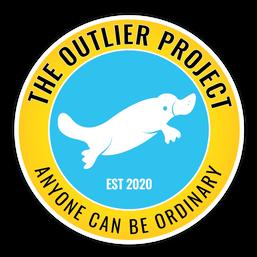


tournament both years, we were just winning everywhere. You know, in the beginning we lost, but at some point I wasn't really losing.
And then I get to the NBA First two years, I'm okay, average, under average, maybe Then I get better, and then the next six years I'm a go-to guy I'm right where I want to be Then I get to the Lakers and you have Kobe, Powell, Fisher, Lamar, Luke, Walton, all those guys
You're not a go-to guy. You're just one of the other players. And that was hard. So, in my prime, I became the best role player I could be. I figured that I just have to be a role player, and that's an easy role for me.
So I didn't think I would shine, but I always knew I was going to be a champion I think we had a chance in
Indiana. We had a chance to be champions where it was Jermaine and Metta World Peace, at the time Ron Artest, and we were the best team in the league. That would have been like, Oh, wow, Jermaine or me was going to get the MVP
Maybe Stephen Jackson would have got it too But then you win a championship, you know, and for me, it showed me how great I was I got defensive player of the year one time, a one time All-Star, a one time All NBA Team, a multiple time All Defense, a citizenship award winner, and a champion and a big game seven game MVP. Not MVP of the finals, but definitely MVP of game seven. Yeah, from that perspective it just showed me how great I am. Not really to have an ego towards anybody, but it just showed me like,” Okay you did it all.” I didn't win MVP so it's not quite complete but I did everything else
You had a very special relationship with Kobe Bryant. I think in fact people used to call you guys Batman and Robin. What made you guys click?
Metta: I think he was surprised how much of a team player I was I think I was able to play around him and off of him Having a huge ego that I had on the court and it also being so competitive and I was able to submit, you know, to Kobe, play with him, which is really difficult.
But work hard through the adversity, work hard through the frustration, work hard through the, “I don't know if how many times I'm gonna shoot tonight.” You know, I'm in my prime and I can't perform to get this next contract Like, I got to be a role player
And that was tough, man That was tougher than what people know because that's the difference between, you know, a 10, 12, 15 million dollar check and a 4, 6 million dollar check as an NBA player, and I think he respected that. More than the money, to get his respect, I can't put a price on that, honestly. Maybe I'm a little bit naive, but I don't know if I would change it for the world.
You were, to me, a great team player. I think you tore your meniscus in your knee and you tore ligaments in your thumb. I think with the meniscus you were supposed to be out for six weeks. You were out for 12 days. The ligaments in your finger, I think you were supposed to be out for six weeks. You were out for six days. Where did that will and desire to get back on the court come from?

Metta: Yeah, because, just everything that I've been through, I play. I play with broken ankles. Literally. I broke my ankle in a game because I kicked the bench when I was in high school and I might have torn ligaments or it might have been some fractures, but I played the next day, limping
I've always played through injuries since I was young And for me, it was never about the money, it was always about the work You know, like, yes, I want to get paid for sure I want to get paid and just have a good time. But for me, the game and the practice were the most important things.
In 2010-11, you won the J. Walter Kennedy Citizenship Award from the Professional Basketball Writers Association. What did that award mean to you? Because you won a lot of awards.
Metta: I know that award was my favorite award, honestly, because that took work For me, that was the hardest award I knew I would get it one day, you know, like if I had a clean career, no brawl, none of the other stuff


But how I got it, that's pretty impressive. I'm proud of that one. That's the only one I keep up, actually. It was really hard to get, and the writers gave it to me, which is why I try to do my best on representing that award as best as I can.
It's a really important award to me, and for me, that's my MVP I got a different Player of the Year, and I got a citizenship award, so that's huge
2004, you're named NBA Defensive Player of the Year, and playing defense seemed to be really important to you, even though I personally think you could have been a pretty prolific scorer. But you chose defense. Why?
Metta: Personally, I love locking people up. If I could have had it my way, I would have locked up everybody. I couldn't really lock up Kobe I couldn't really lock up LeBron, consistently That was really difficult And I couldn't really lock up Durant I did when I got a little older and he came into his prime
But if I had the choice, I would have totally locked them all up I just really couldn't. But I locked up a lot of people, and I get joy when I look at the stat sheet, and it says you shot, you know, 28 times and you only made three.
And then I got to a point where you couldn't even get off your shot. So I got to a point defensively where really good players couldn't even shoot at the basket, and that's a joy It takes a lot of work
When I got players like Stephen Jackson, that's where you saw my average go to 24 When I got players like Johnny
Salmons in Sacramento, that's where you saw my average go to 20. Because those guys could play defense, and then I can do it on the other end
There's nobody that can guard me that I can remember Maybe, like a Matt Harpering, maybe a few guys You know, some guys play pretty solid, but for the most part, my strength was just too much It wasn't even about a move Yeah, guard me at that position.
But I pick defense any day of the week.
You famously thanked your psychiatrist after you won the NBA championship. I think that was an important moment in history, to hear a very tough professional athlete address the importance of prioritizing mental health. Did you realize how important that was at the time?
Metta: Yeah, 100% I knew it was important in 2007 when something told me to start speaking out and just to be vulnerable. I wasn't saying I needed therapy in 2007, but what I was saying, I was just speaking freely. I was saying things that people wouldn't normally say, whether it was funny, whether it was sad, whether it was happy.
I was trying to do more I was trying to do more programming, but I wasn't really getting corporate support because people didn't know how to work with me or run our test at the time But I was trying to provide mental health services in 2007, before I knew what a state or corporate contract was
I still don't have those, but I'm working on a few. I figured I can go on television and talk and tell my story, and I can help millions of people who can't afford health care, mental health care So that, yeah, I knew that I would reach someone, but I didn't know it was going to be that impactful




It's been reported that you auctioned off your championship ring and gave all the proceeds to mental health charities. Is that true?
Metta: Yeah, definitely. I'm not really a jewelry guy. So anytime I wear jewelry, I feel insecure when I have it on, like, embarrassed. So I'm like, “I gotta do something else with this ring. So let's auction it off.” Then I decided I wanted to raffle it, if I can get a bunch of people to pay $1, then I can raise a million dollars
And then some people try to buy it, “Hey, give it to me for $57,000” I was like, That's not gonna even make a dent Like $57,000 What am I going to do with that for other people? So I decided I was just going to do it. We found a raffling company and they worked with us. We raised $671,000. The gentleman who won

it, his wife bought him a hundred tickets because you can buy multiple tickets, and his mom had mental health issues.
So that was a real coincidence when we met. But he has the ring, and it's valued at $671,000 It's probably one of the only rings valued that high I don't even know what these rings are going for, but they're not going for $670,000 now
Metta, you've got a new son who you've been holding this entire interview. By the time this comes out, he'll be about seven months old in March. What are your dreams for your beautiful son?
Metta: My dream for him is to be a really good person That's the main thing, to really just explore life and add value to the world, you know? He's such a great little brother. He has a ton of energy, by the way. He's adorable.


You joined a $100 million fund to support advancements in sports technology. What do you think we should be keeping an eye out for in sports tech? And what are you excited about in that space?
Metta: I'm excited about decentralization I'm also excited about building community and connecting You never really had a time in life where you could be so independent, play basketball on your own terms, meet people around the world. And I think that there's a race for people to get there. You can see the big corporations trying to get there before someone else gets there, and that's what I like about it. I think you have the opportunity to work with big corporations to build community, platforms, and to just explore, using tech
I think we are the actual technologies, the actual humans Because if the human is not using it, who's going to use it? You know, a robot, they can go play all day. All right, great. Go to Mars and go play, right? And keep it going, by the way. But as humans, we see it differently, which is really impressive.


Photocredits:Metta’sInstagram
How can we do this, how can we do that, how can we do all this at one time? It's super unique, so from that perspective, being able to think about something and then it's almost like an illusion for the most part. Because at the same time, you're always going to be in this body. But through technology, I can communicate with you differently. We can sign up on a sports app together, or we can even sign up on a yoga app together and do something totally different, or I can do fantasy sports with you
Photocredits:MettasInstagram
Then our mind is going to totally adjust to that and it's going to connect us in a different way And I think that's the beauty about sports tech that I love. It’s bringing people together and just experiencing different things in our minds. It's just so fascinating.
I have to big Knick the first r Chicago had start hometow
Metta: Yes that one. Y they mess shocked and I just couldn't really believe it.

I do want to be the CEO of a corporate company one of these days. I'm looking at an opportunity where I fit perfectly. So I do want to run a big company. Then I do want to chair a big public company. And then I also want to be president and coach of an NBA team at some point, if I can wiggle that in there
But, you know, if those things happen, basketball will live on without me. It was a moment It was an opportunity for it to go down, and it didn't And it was very unfortunate I think it was unfortunate for a lot of people, myself, the city, because I think the city truly wanted it to happen But I agree, it just wasn't in the cards It’s something I will have to live with for the rest of my life But at least I can say that New York City recognized that I should have been a Knick. or bold ver acious achieve fe? cious and to launch obably the
And then also I would like to be athletic director and a head coach of a college I might have time to do all of it I don't know But I think entrepreneurship is kind of on my mind first. But definitely, as I get more experience and more resources, being CEO of a corporate company is something that I really want to do.

"You become everything in your environment the happy times, the bad times. It’s a mind game growing up, but with time, perspective, and decisions in real-time, you can change the narrative of your life."
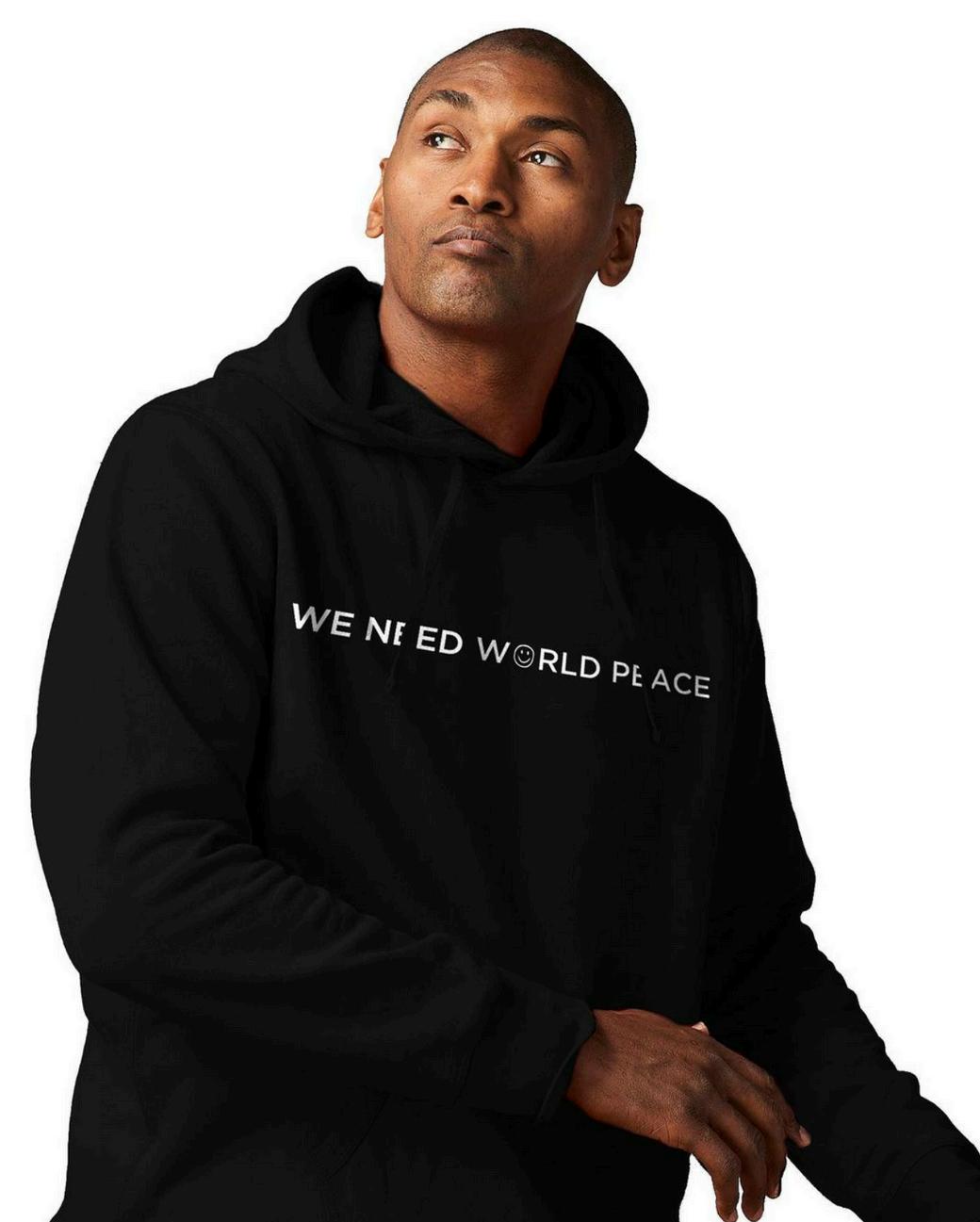



“The author reveals the secret ingredient to success: perseverance and passion Definitely a must-read for anyone striving for greatness.”
OM Staff pick-Scott




“This delves into the power of bold action and the importance of supporting those who dare to be different.”
OM Staff pick-Victoria


“Outliers crave the freedom to express themselves. Let this music and movement inspire you to unleash your inner outlier.
OM Staff Pick-Kathy







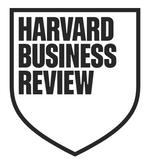

“As an Outlier, you ' re always seeking innovative solutions and unconventional perspectives. This piece delivers both.”

“Time to tap into your creativity! Get inspired to think outside the box and create something truly unique. Read this for a dose of creativity!”
OM Staff Pick-Kathy
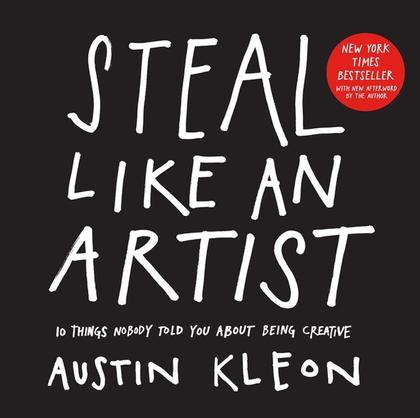
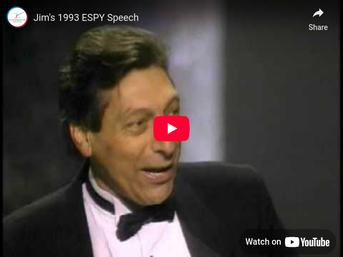
“This speech is not just adefying expectations, it’s a battle cry for audacious living.”
OM Staff pick-Scott





“ This moving tale will leave you cheering and believing in the extraordinary ” OM Staff pick-Scott


“Be inspired to break free from your comfort zone, discover the power of fearlessness and the transformative impact of living audaciously.”
OM Staff Pick - Melissa




“Outliers know: success isn’t random Neither is this level of creativity.”
OM Staff Pick- Victoria
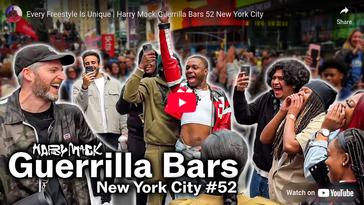




“This book captures fearless girls embracing their quirks, passions, and joy without apology.”
OM Staff Pick-Melissa

“A must-read for anyone ready to embrace boldness and rewrite the rules!”
OM Staff Pick-Scott

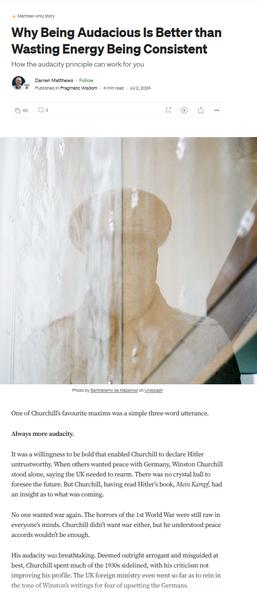





STORY

JAB Camp was born from my personal story a journey shaped by basketball, resilience, and a desire to bridge divides Growing up in suburban Maryland, basketball was my sanctuary, a place where I could fully express myself But my life took a dramatic turn when my parents divorced, and I moved to inner-city Philadelphia at age 12. The cultural differences were stark, and the divisions between communities opened my eyes to problems that desperately needed solutions
This experience planted the seed for JAB Camp. Based on my own journey, I envisioned a program that could help young athletes not only excel in basketball but also build bridges across social, cultural, and economic divides My hope is that JAB Camp becomes an everlasting legacy that long outlives me, positively impacting future generations.



As I pursued a career in professional basketball, I noticed a gap in youth development: the power of sports to connect people from diverse backgrounds was largely untapped. I wanted to change that by creating a program that teaches young athletes the importance of connecting with people from different backgrounds. It’s essential to learn how to build relationships with those who may not look like you, but through shared
experiences, can become lifelong friends
Basketball is the perfect vehicle for this lesson Why? Because sports are a universal language. On the court, everyone works toward the same goal: winning as a team. Your role on the team isn’t defined by your skin color, background, or personal beliefs it’s defined solely by your ability to contribute to a shared success This lesson is invaluable, both in sports and in life
I firmly believe that basketball has the power to transform lives, but its greatest gift lies in the opportunities it creates beyond the game Growing up, I played elite travel basketball and attended top schools, yet I wasn’t taught critical life skills like financial literacy, nutrition, or how to confront societal issues like racism. These gaps in education motivated me to design JAB Camp as more than just a basketball program It’s a life skills academy
We teach our campers lessons that will serve them long after the ball stops bouncing Financial literacy and health education are non-negotiables Regardless of whether a child continues in sports into adulthood, they cannot avoid the realities of money and health By introducing these lessons early, we help them develop habits that will set them up for success in every aspect of life.
Hate crimes and societal divisions are on the rise, which makes the mission of JAB Camp more critical than ever. Through basketball, we aim to create a diverse and inclusive environment where understanding and respect thrive. We partner with organizations like the AntiDefamation League to incorporate bridge-building activities into our programming
On-court exercises emphasize teamwork and unity, while off-court activities help campers form meaningful connections with peers from different backgrounds These experiences not only strengthen their sense of community but also instill values of acceptance and empathy. By giving our campers these experiences early on in life, it is my hope that these lessons have lifelong impact.
Sports are one of the most powerful tools for healing and unity They teach us to look beyond our differences and work together toward shared goals That’s the

lesson we aim to instill at JAB Camp because when young people embrace this mindset, they become agents of change in their own communities
JAB Camp isn’t just a basketball camp; it’s a movement designed to shape the future changemakers of our society. Our five-year goal is to impact over 100,000 young student-athletes, equipping them to lead both on the court and in their communities. Longterm, we aim to expand our programming to 10 states and five countries, making bridge-building and combating hate a global initiative

We want JAB Camp to be a space where campers form lifelong friendships, embrace diversity, and grow into leaders who make meaningful differences in the world People can get involved through personal donations, volunteering, or simply spreading awareness about our mission At its core, our goal is to inspire and educate the next generation to create a more united and inclusive future.
I’m incredibly proud of the impact JAB Camp has had in such a short time. By the end of 2025, we are on track to reach over 2,000 student-
athletes globally. Our work doesn’t stop at camps and clinics; we’re also renovating courts and building infrastructure in underserved communities. Seeing the tangible impact of these efforts has been one of the most rewarding parts of this journey We believe in the power of basketball not just to win games, but to change lives Together, we can create a future where the love of the game builds bridges, creates understanding, and transforms communities.
As a young entrepreneur, I often get asked if there is
one piece of advice I would offer young athletes or anyone looking to make a difference. It’s this: Take the first step. You’ll figure out the rest. I wholeheartedly believe that basketball is not just a game it’s a force that can reshape the world Together, we have the power to break barriers, ignite change, and inspire greatness I invite you to be a part of this movement, to stand with us as we push boundaries and leave a legacy that will echo for generations. The journey starts now let’s make it unforgettable.








Meet the dreamers, the doers, and the visionaries who are living proof that the most extraordinary lives are often built on the foundations of the unconventional

Support these four incredible outliers who are redefining what it means to truly live an outlier life.
mout(liers)...





Founder Chalk Performance Training, Community Builder, the man behind over 200,000 transformations
So, Ryan, you have weathered a bunch of storms in your life, including a brief stint in jail for stealing Christmas presents. You met your dad for the first time two years ago at age 36, and much, much more. How do you think overcoming adversity helped shape you?
Ryan: Now that I'm at this part of my life, I honestly feel like without the adversity, life's a little bit boring. And I honestly feel like the harder situations were, the more it shaped me to be a much better version of myself. And throughout every single one of these things, whether it was getting arrested for stealing during that time, I actually was doubling, tripling, quadrupling down on this thing that I loved, which at the time was competing in a sport called CrossFit
There were a lot of times in my life where I could have gone home and quit One of my rules is just to always show up, never quit, you know Because I didn't do that It was just one of those things that happened to work out, given the scenario. You're chipping away at the tunnel and, you know, you're like, one more hit away from hitting the goals. And I'm so happy that I stuck it out in that particular scenario.
Everything with my dad, for example, was something I had been trying to meet him since I was 18 years old When you grow up in a family and you don't feel like everything fits just right you feel like you got this great puzzle piece, which is your family, but there's a couple pieces missing I'd felt that way for a really, really long time And then as soon as I met him, it just changed everything for me. It

opened up a completely different world of what I believed to be possible, why I was the way that I was. And it's just an amazing, amazing thing.
And then, on top of all this, I had boneon-bone in my left knee, which kind of forced me to stop competing. It was probably one of the saddest moments of my life, on top of getting arrested and all these different things. That moment was when I switched into business and started building a brand for myself building something a little more substantial in terms of having a career and something to look forward to years down the road beyond just fitness
Even though my business was fitness, it forced me to build something great at the time. Honestly, I don't think I would have what I have today if it wasn't for that. So I'm actually one of the most thankful people when it comes to every shitty scenario that's happened in my life.
It really is. If you've ever read the book by Viktor Frankl, Man’s Search for Meaning, his thought process in that book is just unbelievable. And it's about how people react in those scenarios of, like, you know,
you're gonna die in a few days how are you gonna live the rest of those days, and how are you gonna react? It's actually incredible
In the book, he basically says that people who have something to live for, who have purpose in their life, wind up living considerably longer They get through diseases and all sorts of different things I like to think that way on my own
Ryan: I was in high school maybe even middle school. I think middle school. And I joined track. That was the first school sport I did. I had this coach, and his name was Rob Thomas. I haven't thought of his name in a long time, but it was Rob Thomas.
I remember we were training one day in the summertime, and he took his shirt off Like, I didn't know how fit he was, but he took his shirt off one day, and he had a six-pack And I was like, "Wow, this guy is fit," you know? I remember just being a young kid and thinking, "I want to look like that " Like, that's all I cared about

I remember every day after practice, I'd be like, "Yo, how do I look like you? What do I do?" And he'd just be like, "You know, what do you guys have for dinner with your family?" And I'm like, "Oh, we always have this and this, and there's a bottle of Pepsi and Coca-Cola and all this stuff " And he was like, "All right, if you want to look like me, you can't drink soda anymore And you have to prioritize eating a little bit more meat versus macaroni and cheese and pastas and all these different things."
I didn't know anything about this stuff at the time, but I remember going home that night, and we had the Pepsi and Coca-Cola on the table. My mom was pouring the drinks, and I was like, "No, I'm not drinking that anymore " And she was like, "What do you mean?" And I said, "My coach said if I don't drink that anymore, I'll be able to get abs So I'm done "
And it was just a light switch That was just me saying, "This is who I am going forward " And now, where I'm at in my career, I do one-on-one coaching with people, and we have all the programs and all this stuff. Eventually, I'm sure we'll get to this in some of the other questions, but I want to write my own version of a book that's kind of like "Atomic Habits."
One of the most pivotal things for everybody is that if you don't make an identity shift of who you want to become, 85 to 90% of those people will go back to where they started within one to two years
And it's crazy now to think back of me being that young and just in that moment, just be like, “No, I don't drink soda anymore.” I didn't say I was trying to quit drinking. I just said I don't drink soda
anymore. This is something I reflected on very recently. I was like, “Wow, I've had that mindset since the very beginning.”
So you trained with the US Olympic skeleton and bobsled teams and qualified for the Olympic trials in both. Those aren't mainstream sports outside of the attention they get during Olympic years. What drew you to those sports?
Ryan: When I was about 12 or 13 years old, I was growing up in Toms River, New Jersey, and one of my friends his family owned the gym. That gave me the ability to go work out in a gym, you know, under the age of 16, which I think was when you could actually go to the gym on your own
But I got to the point where my parents would drop me off, I knew the people who owned it, so they let me train I think I was around 12 or 13, and there was this guy in the gym doing box jumps with dumbbells in his hands. He was also doing power cleans like, in a regular .

commercial gym. And I was like, "What is happening over here?" And he also looked extremely fit. I was like, "This guy looks badass "
So I went over to him and said, "Hey, man, what are you doing? Like, I want to learn how to do this stuff, you know?" And he was super nice to me He said, "I'm on the Olympic team for bobsled " And I was like, "Oh, very, very cool " I remember going home that same day and looking up bobsled. I remembered seeing the movie Cool Runnings, and I was like, "I'm gonna watch this movie. It's probably like what this guy's doing." So I watched Cool Runnings, and I was like, "I want to do that. That looks really, really cool."
And it's funny because fitness had taken over my life since I met that guy I was telling you about, my track coach Then I met this guy, and it was like a couple of different signs were happening During my track career in high school, I was an amazing runner And obviously, like all people who run track, I wanted someone to look up to. So I started looking into different athletes, and I found Steve


Prefontaine. I remember like once a week, I would watch the movie Without Limits, which is about his life. And I just thought it was the coolest thing in the whole world I used to always tell myself I didn't have any talent I just had all the discipline I just had all the hard work That was what he believed And that was something I just was really excited about I just knew, my whole life, I was going to be an athlete I was going to be in fitness of some kind.
I moved when I was 18 to Hawaii to go be a helicopter pilot. I actually had my helicopter license and did all that stuff.
I was going to the gym one day, and there was a sign from Verizon they were doing a recruitment tour. They were going to all 50 states, trying to find people who were fit enough to be bobsled and skeleton athletes And I was like, "How cool would it be to just show up to this thing, probably blow everybody
out of the water, and see if I could qualify for the Olympics? That would be so cool."
And I remembered that guy at that time from the gym And I went I got the second-highest scores in the nation Before I knew it, I was moving to Utah Moved to Utah, qualified for the Olympic development team And sure enough, that guy that I saw when I was 12 or 13 years old was still there And I got to say hi to him. It was insane. His name was Pablo. He actually has an Olympic gold or silver medal or something like that.
This is a crazy story. So a walk-in, meaning not a member of your gym, Marj Greene from Michigan. She helped to change the course of your life. Tell us what happened.
Ryan: So it's crazy because, at the time, she wasn't that person. She was just a regular person who got divorced, I believe, and her job required her to travel a lot. She kept dropping into my gym. She's like Donald Trump's kind of righthand person, I guess I'm not exactly sure what her actual title is, but she's very high up in the Republican Party And she's very outspoken she's very polarizing People either love her or hate her She's actually still the owner of the Chalk Performance Training Facebook group, so I couldn't even delete her if I tried. And it's funny because people message me in the group and say, "I don't know how I feel about this." I'm like, "Dude, I had no idea this was gonna happen."
But anyway, the story goes, she was not that person dropping into the gym. And every time she would come in, she’d say,
"Ryan, I love your workouts. I travel all over the world. I drop in all over the place. Nobody makes workouts like you." The second time she dropped in, she tried to tell me, "You have to put these workouts online You can make money doing them," and so on and so forth But I was just of the limiting belief of, like, “Who would buy my workouts when you can just go online and get free ones?” And she said, "Well, that's not how it works They buy them because they're your workouts," and all this stuff. And I was like, "I don't believe any of this."
But then, the third time she came in, she said, "Listen, I'm gonna start a Facebook group for you as a little community. You're gonna start this online thing. I promise you it's gonna work Worst case scenario, it makes you a couple extra thousand dollars, and you don't make that much money now anyway " And I was like, "Okay, let's do it "
And I remember asking my web developer, "Hey, can you put wherever we have the workouts online? Typically, I just want you to put a smiley face that says, 'Hey, here's today's workout.' And then, when they click on it, it changes to a sad face and says, 'Hey, if you want to see the workouts now, it's going to be $20 a month.'" And we did that.
In the first week that I launched it, I made exactly $4,000, which was exactly how much I was paying myself as the owner of the gym And I remember, just in that day, I doubled my salary I remember just being like, "Wow, this is insane " And then, yeah, that was the start of it It was pretty incredible Essentially, that $4,000 turned into $15,000, $20,000, $25,000, $30,000, $40,000 a month. And I remember, right around $50,000 a
month, this was when I genuinely thought I was making more money than anyone I literally was like, "I make $50,000 a month. I can go buy any house in Newport Beach," which was completely a lie. But in my mind, I was like, "I'm a billionaire." I didn't even know people made this kind of money.
And that was when I met another friend who was making way, way, way, way more than me like millions and millions of dollars a month Alex Hormozi, if you know who he is I asked him to be on my podcast, and he was like, "Yeah, come on over " And I literally flew out the next day to Texas and went to his house This was when he had 3,000 followers Now he's huge
And he's like, "How much money do you make?" And I was like, "I'm making, like, 50 grand a month right now, on my thing." And he said, "That's good." And I said, "Well, how much money do you make?" He's like, "I do, like, 1.2 a week." And I was like, "Holy shit."
But that limiting belief was something that I needed because when I met him, I literally within six months went from 50 grand a month to, like, $200,000 a month, just on the general belief that it was possible to do that All of this happened just because certain people have come into my life at just the right time, and I allowed them to shift my perspective.
You know, a lot of us get stuck in the same perspective that we grew up with, and we believe that those are basically the limiting factors in our lives. And I think sometimes you can read about people in a book, you can read about them in a magazine, like Outlier
Magazine, and you can get a little pinch of motivation. But something happens that goes beyond motivation when you meet them in person It is an unbelievable feeling
So your company, Chalk, has been featured in NBC, Muscle and Fitness, ABC, Business Insider, The Chicago Tribune, and many more. What makes Chalk so special?
Ryan: In my opinion, I think it's just the general fact that we like to focus on things beyond just health and fitness. We focus on identity transformation what kind of person gets the different results that everybody's after? One of my missions is to build a community of people who are built differently: people who are uncommon and who make uncommon decisions to get uncommon results
And I think all of that really comes down to the fact of, like, what is the bullshit you keep telling yourself every single day that is basically keeping you stuck right where you are? And what are the things you can do? Who are the people you can align those goals with and join in a community of individuals who don't want to settle for less? I think that's kind of the thing that I preach throughout my social media. I do a little bit of that on our branded social media as well But, you know, a lot of people find me polarizing they either love me or hate me But at the end of the day, I don't think anyone can say that what I'm saying is wrong It just either bothers you or it doesn't, and it either motivates you or it doesn't
I think that in the world of social media
we're in right now, everything is very, very, very soft. Everybody wants to say that you're doing great, and I'm here to say that you're not even close to the best version of yourself It's because you keep believing that all these excuses you're making right now are the balance of life
I don't know anyone who has had a great balance in life and has ever achieved anything great even if it's just their own personal self-respect, to be fair.
Your app has a whopping 50,000 users. Why do you think it's gone so viral?
Ryan: So in business, if we shift to a more business-focused conversation here, you have two things that really make something special You have a unique selling mechanism, or you have a unique selling proposition Basically, you can either deliver something better than anyone else, or you can give them something that they can't get anywhere else.
What really helped my particular program grow was the USP

of something called Full Body Aesthetics. That particular program is a full-body training approach where you go to the gym and lift every body part in every training session It's an unorthodox approach, and a lot of people think it's not necessarily the best way to train
I would argue that the best way to train is the way that allows you to show up to the gym and be able to put in the intensity At the same time, I feel like it should be something you're excited about.
When you break it all down scientifically, it really comes down to how much stress you're putting on your muscles across the week. A lot of people say, "I'm gonna do a push-pull split," or "a leg day and a chest day," and so on. I think all of that is great, but at the end of the day, most people aren't putting in the intensity in the gym that will give them the results they need

I've seen the numbers. I've seen 200,000plus transformations. I've seen people completely transform their lives just by switching to a training split like this. Because of that, you get very high wordof-mouth, and when you get very high word-of-mouth, you get a lot of users
You have blown up on social media. What do you think people are responding to?
Ryan: It's the watered-down advice that you keep getting all across social media the motivational fluff, the feel-good shortcuts that everyone talks about all the time I think people are just tired of being lied to I think they're tired of being told that success, fitness, discipline, and all this stuff can be had without any sort of sacrifice And I'm here to tell you that that's just not it.
So, I'm a big fan of hitting the muscles more often, and I'm a big fan of using a slightly different training style to keep things more exciting.
I'm here to tell you that you need to sacrifice. I'm here to tell you that you should have the kind of discipline that makes people uncomfortable. I'm here to tell you that you're so much better than

you think you are. But the reason you're not able to show up the way you want is because you keep letting yourself down. And sometimes, people let themselves down before they even get out of bed. They hit snooze, right? And they take way too long to get out of bed.
They say they were going to wake up earlier that day even if it's just 30 minutes Like, "I want to go from 6 a m to 5:30," and then 5:30 hits, and they don't get out of bed until 6 Seems like a small thing, but if you look into behavioral changes and the things that make people change, 95% of our actions each and every day are on autopilot because we've been that person for such a long time.
You have to actively tell yourself, "I'm going to be different every single day." And the reason my shit is so aggressive on social media is because it needs to actually create an emotional response. I don't want you to read any of my stuff and think, "That was a good piece of information " I want you to read it and think, "That’s painful, and I need to change "
Agreed. So things like Ozempic must drive you nuts. Shortcuts in general. I mean, in general to a degree, right?
Ryan: I don't like anything that is built for profit. The same goes for fast food, you know what I mean? To me, fast food is not only low-quality food that I just will not consume, but as a standard of my life, I just won't do it.
On top of that, I don't want the person
who created that company to even make money off of it. I hate everything about it. I hate what it represents. I hate what it does to the common person. And it's the same thing with Ozempic. It's just made to make money. It's made to make people reliant on it. There are actually a lot of children on it now, and it's like, you didn't need a pill, you needed to just fix your lifestyle That's literally all it is Everyone just wants to live this super soft, ridiculous lifestyle
I wish I was allowed to stand in front of the entire world and say what I want to say You know when you see those movies of medieval times, and the king is there just telling everybody? I wish I could do that. But that's not the reality. I'll grow my social media as big as I can and say what I want to say to make as much impact as I can.
But even stuff like Ozempic should, in my opinion, only be allowed if you have, like, probably 100 pounds to lose If you have 50 pounds to lose, we can do that in a pretty decent amount of time by
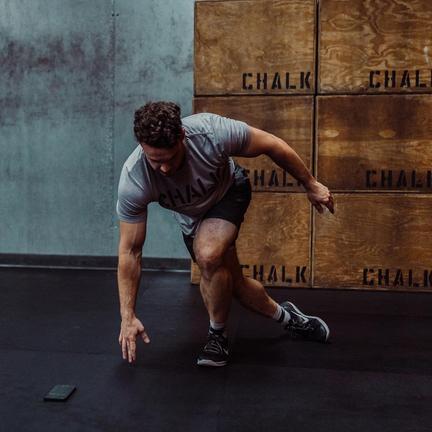
changing your lifestyle and making actual changes that will transform your life forever. But most people will take the pill, get to where they want to be, go back to where they started, and then keep taking the pill over and over again.
Then they're reliant on something. And the sad part is, you've created the mindset of "I am not the person who's able to do this thing without this " And now, you've changed your life in a negative way
What
are a few things, Ryan,
that you know in your core will change people's lives that they should be doing?
Ryan: Radical ownership of your life Every single thing in your life is your fault Literally Like, everything No one put a gun to your head and told you to eat junk food Nobody said, "We're not gonna meal prep this week We're gonna do this instead " You make the excuse every single day to do the things that are essentially chipping away at the goals that you have.
And then, on top of that, even on the business side of things, I remember asking Alex and Layla. They're like, "Why don't you hire a COO for your company? Why don't you hire this? Why don't you hire that?" And I'm like, "Dude, I try to hire these people, and they just suck They're not the person I want or whatever "
And they're like, "Ryan, do you understand that all of this is your fault? I said, "What are you talking about? How is this my fault?" And he said, "You didn't

train them well enough. You didn't screen them well enough. You didn't onboard them well enough. You didn't do this. You didn't do that. When you really think about it, it's all your fucking fault. Everything is your fault You could have made every single scenario better had you just taken the time to do it "
But people go from one business to the next, from one relationship to the next, and they don't realize that if they just stuck with the original plan, they probably would be so much farther along than they think. But people believe that chasing the new shiny object will get them ahead.
I love the way Alex portrays this. He calls it "the lady in the red dress," which is a Matrix analogy. The better you get at something, the hotter the chick in the red dress gets, and the harder it is for you to say no
Just before this podcast, I was telling you I had a business opportunity, and you were like, "Man, one of the biggest issues about coming up is being able to say no to things " Warren Buffett says his entire recipe for success was being able to say no when most people said yes.
I think having radical ownership is a really, really big thing that is lifechanging And number two is having uncommon discipline. Uncommon discipline, in general, is one of the big things I talk about a lot on my social media. I would define uncommon discipline as essentially being able to make the opposite decisions of everybody else. More than likely, the decisions you need to make to get to where you want to be are the opposite of the people around you
I think that being able to make uncommon disciplinary decisions is freedom in your life A lot of people think that discipline is restriction, but discipline is actually the highest form of selfrespect. You're not accepting anything but the highest quality level of food into your body, the highest quality level of taking care of yourself going to the gym, getting steps in throughout the day, prioritizing sleep, and doing the things that are needed for you to perform at your best.
Being able to look your best, look at yourself in the mirror, and respect what you see So, radical ownership and uncommon discipline

It's easy to be a victim because when you're a victim, you don't have to take responsibility for anything.
Ryan: It's so easy to do That’s not to say it's not seducing, and it's not to say that people like us even myself don’t sometimes feel like victims I'm like everybody else I have screw-ups here and there But I like to check myself whenever I feel these things happening
This is the thing, right? You have people like me who sit here and say all these things, and then something happens in my life, and you're like, "Bro, you said to do this." And it's like, well, here's the deal. As long as you can recognize that it's happening and say, "Hey, okay, I know where I'm at. I need to fix this. Now, what is the plan for me to fix this?" that is what I want everyone to understand We're all going to make mistakes, and that's cool, you know what I mean? It's about understanding, “I'm in this mistake, I can fix this, and I have the power to fix it ”
One of my favorite quotes of all time I have no idea who said this is, "You are


never obligated to be the same person you were five minutes ago at any point in time." You cannot get results overnight, but you can change direction in five minutes. I just love that.
I think a lot of us don't understand how important that is. We don't understand how accessible that is. You can literally change your perspective on everything in just five minutes. It's hard to do, but you can't sit here and argue with me and say it's not possible
When you wake up every day, what are your non-negotiables?
Ryan: Discipline over feelings I feel all the same things everybody else feels every single day I don't want to do this I don't want to get out of bed I don't want to do this work that I have to get done And the disciplinary part of me is like, "When you get this done, nothing is going to make you feel better than that accomplishment."
The worst thing you can do is not do what you need to get done and have that regret later on There's just nothing worse than that. You start feeling like you wasted your day, or you wasted your week, or you wasted your month, or you wasted your year. I'm saying things that are probably landing so hard for people, but you have to understand that your discipline is the most important thing. What do you need to get done? You have to get it done no matter how you feel about it And actually, the worse you feel when you get it done, the better you're going to feel after
I've gotta ask, what's up with the $35,000 trampoline in the house?
Ryan: Honestly, I actually wanted this loft net It’s a big net where you put blankets and pillows, and I thought I'd hang out there. It would be like a reading corner in my house. I saw it on some crazy Pinterest wall or something like that, and I sent it to my designer who's helping me with the house. I was like, "Dude, I want this net."
It's a huge 20- or 30-foot ceiling type of situation, from the second floor all the way up to the third There's supposed to be a big chandelier that hangs down, and I was like, "This is what I want " And he said, "You know, it’d be really cool if you put a trampoline in your house "
I asked, "Is that an option?" And he's like, "Anything's an option." I said, "Yeah, let's give it a try." So we did. And you know, it's been one of the coolest things I've had in the house for sure. A lot of people get a lot of kicks out of it.
This is the Audacious Issue. Do you have any audacious things that you want to accomplish in the near and long term?
Ryan: I would like to build something with my community of people in my coaching programs with the app Whatever I have going on, I'd like to do more in-person events That's something that's really important to me I love to travel I'd love to do events with people
You know, being an online person, sometimes you get a little lonely. And
sometimes I do little events here and there, and I see everybody. It’s one of the greatest things in my life. It's way more important than money to me: having experiences
And then the second thing, and this is probably the most audacious of them all, would be that I'd love to have a book that actually competed with Atomic Habits Probably think about Atomic Habits, but, like, punching you all the time Like, it has all of the studies, the science, and the tactical advice, but it's also rooted in discipline and just uncommon sentence structure and words stuff that really gets you to move the needle.






The Outlier Project Guest - January 7, 2025
International Keynote and TEDx Speaker, Author of Civil Unity, Nicknamed "Brother Teresa", CEO of Go Global Together


“CIVILITYISTHEACTIVE
DEMONSTRATIONOFRESPECT ANDTHEABILITYTO DISAGREEWITHRESPECT.”

“ALWAYSSTAYTRUETO
YOURSELFANDGET COMFORTABLEWITH BEINGUNCOMFORTABLE.”

The Outlier Project Guest - January 21, 2025
Entrepreneur, TV Host, Author, Five-Time World Boxing Champion
The Outlier Project Guest - February 4, 2025
New York Times Bestselling Author, CIA Senior Operations/Paramilitary Officer (Ret.) Pararescueman

"AWARENESSISTHESINGLE BIGGESTWEAPONTHATWE CARRY."

“MOREISLOSTWITH INDECISIONTHANTHE WRONGDECISION.”


The Outlier Project Guest - February 18, 2025
Army Special Forces Green
Beret, Entrepreneur

The Outlier Project Guest - March 4, 2025
Executive Coach to C-Suite Professionals, Expert in Sales Growth, International Keynote Speaker, National Best Selling Author of Keep Telling Yourself
-PALAKPATEL

"SUCCESSISEMPTY; SIGNIFICANCEISWHAT FULFILLSUS."

“THEQUALITYOFYOURLIFE
DEPENDSONTHEQUALITYOF QUESTIONSYOUASK YOURSELF.”
JENNDRUMMOND

The Outlier Project Guest - March 11, 2025
World Record-Holding Mountaineer and Speaker, Author, Podcast Host












“I
USED TO THINK ANYONE DOING ANYTHING WEIRD WAS WEIRD. NOW I KNOW THAT IT IS THE PEOPLE THAT CALL OTHERS WEIRD THAT ARE WEIRD.”
PAUL MCCARTNEY




